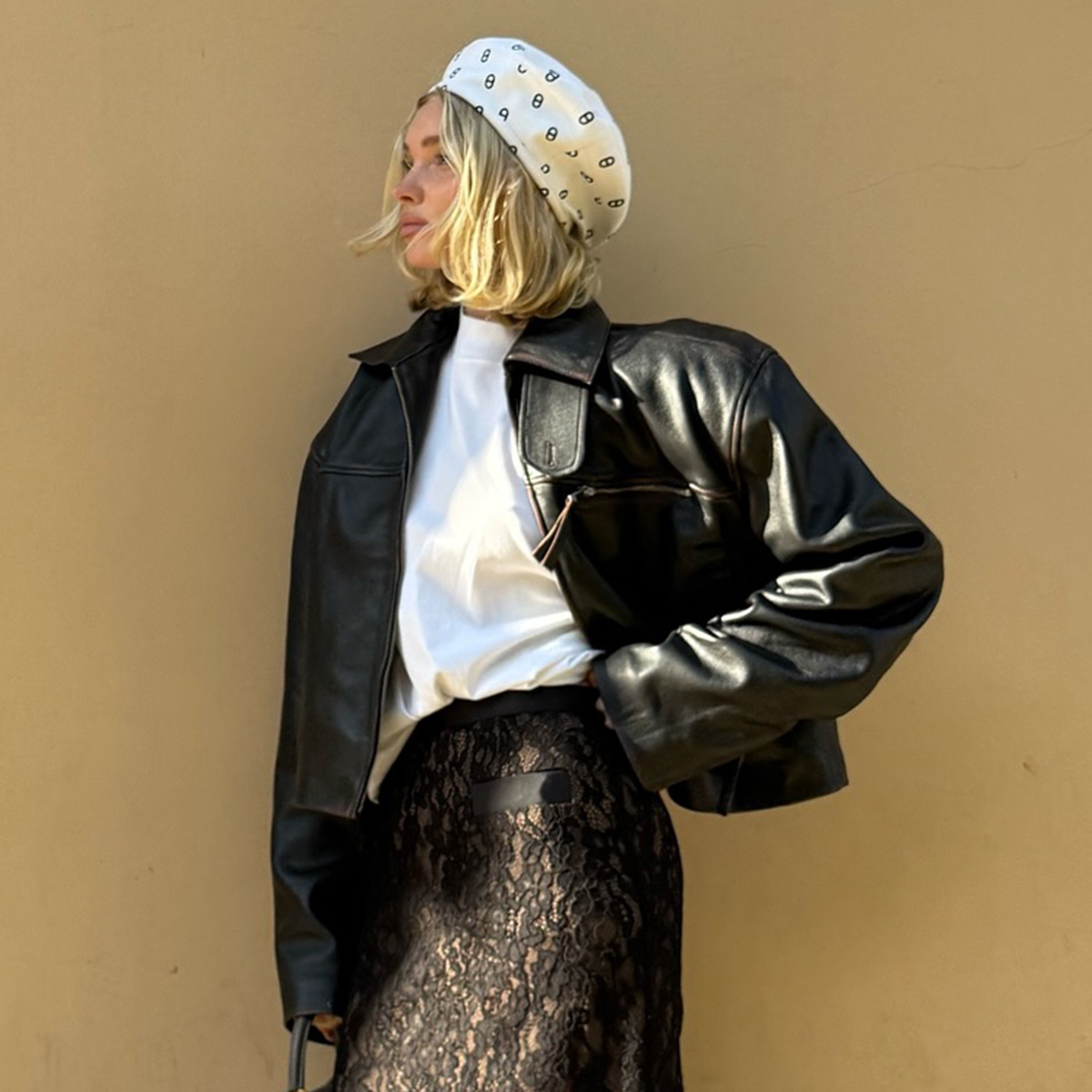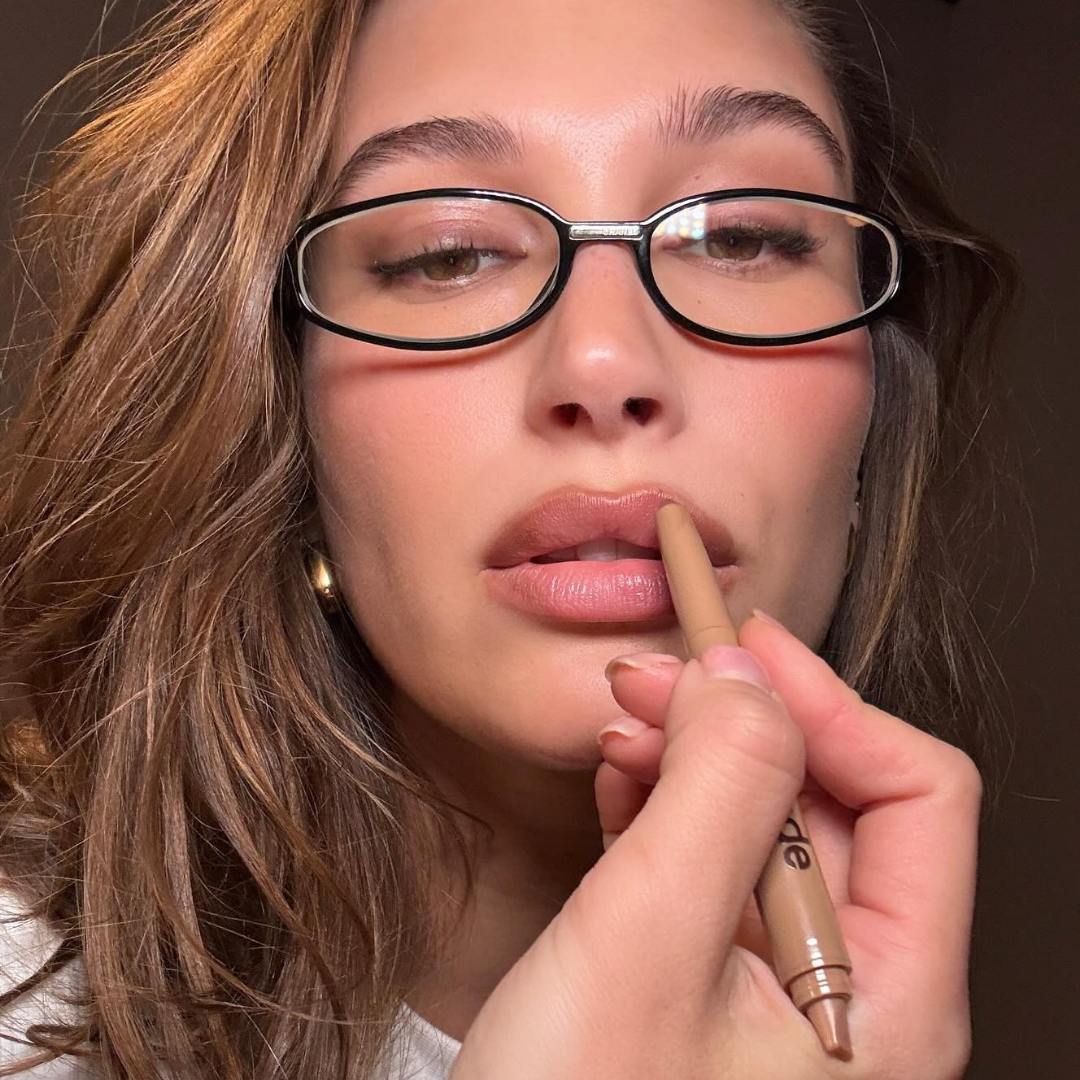There's Barely a Moisturiser Out There I Haven't Tried—Nothing Compares to These 17 Hardworking Creams

The best moisturisers are one of the most important players when it comes to a happy complexion. Think about it, when it comes to the perfect skincare routine, cleansers and toners can strip your skin of moisture, so if you're not adding that moisture back in, your complexion will end up dry and irritated.
No, moisturiser isn't just for the winter months either. Sure, our skin can be drier in winter thanks to the colder weather, but no matter your skin type, your complexion will benefit from using moisturiser all year round.

I have combination skin and have been busy putting the best moisturisers to the test.
As a beauty editor with true combination skin (I'm talking oily, dry and blemish-prone skin), I have spent years putting some of the most popular moisturisers on the market through their paces, and I'd like to think that I know what's what when it comes to choosing a new moisturiser to add to even the most basic skincare routine. Below, I've rounded up my ride-or-die formulas for every skin type, and I've even consulted an expert on how to choose the right moisturiser for you—whether you're looking for the best moisturiser for glowing skin, the best moisturiser for dry skin or the best moisturiser for mature skin.
When Should You Use Moisturiser?
First things first, when should you be using moisturiser as part of your skincare routine? "In the morning, [apply your moisturiser] after your serums or actives, and before sunscreen," says consultant dermatologist Dr Alia Ahmed. At night, Dr Ahmed advises applying moisturiser or night cream as the last step in your routine.
"The order of application depends on the product consistency," she explains. "Lighter or more fluid textures go on the skin before heavier textures. [This is because] lighter formulations, like serums, are absorbed quickly. [By applying these first], you will also ensure that you get the best out of every product."
How Much Moisturiser Should You Use?
So, now that you know how to apply your moisturiser, how much product should you use? The thing is, this will depend on what formula you go for. I always recommend following the instructions and seeing how you get on. If your skin is still feeling parched, try upping the amount of product and see how your complexion reacts. It can be a little bit of trial and error, but once you get it right, your skin will thank you.
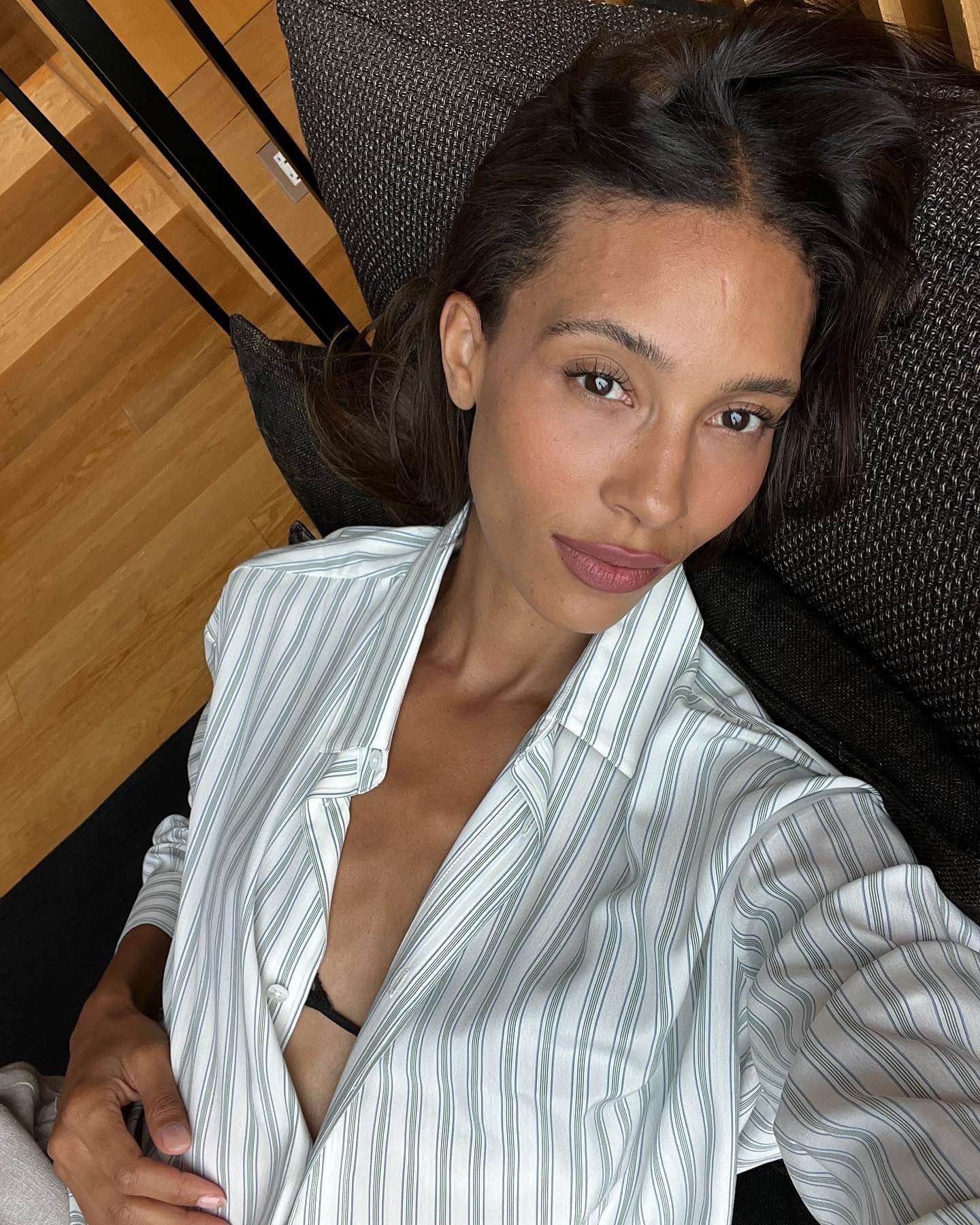
How to Find the Best Moisturiser for Your Skin Type
Different skin types will require different moisturisers. "For those with dry or irritated skin, replenishing the skin barrier is key," says Dr Ahmed. "Look for ingredients that mimic natural moisturising factors in the skin like glycerin, which works to attract and hold water in the skin to provide optimal hydration." Dr Ahmed also recommends looking out for allantoin, which works to soothe and soften the skin, as well as vitamin E, an antioxidant that protects skin from environmental damage. Of course, hyaluronic acid is also key when it comes to hydration.
Those of you with oily or blemish-prone skin might think that moisturiser will make your skin concerns worse, but according to Dr Ahmed, this is a total myth. "Maintaining hydration and protecting the skin barrier is very important for people with this skin type," she tells me. However, it's important to choose the right formula. "Greasy or heavy textures should be avoided, as these can aggravate inflammation and clog pores," she says. "Highly fragranced products can also cause further irritation to blemish-prone skin."
Instead, look for gentle, fragrance-free formulas that prove non-comedogenic moisturisers. This means that they are formulated without pore-clogging ingredients so shouldn't aggravate oily or blemish-prone skin types.
Best Moisturisers Testing Criteria
Below, I've rounded up a tight edit of the best options on the market, from luxury buys to affordable moisturisers. I've spent years testing the best formulas for both dry and oily skin types, and have seen first-hand just how effective each product can be. I've made sure to keep the below criteria in mind, and have included all of the pros and cons so that you can make an informed decision before investing in your top picks. You are welcome.
- Is it suitable for all skin types?
- Did my skin feel hydrated after using?
- Is it good value for money?
- Is it enjoyable to apply?
- Can I apply it morning and night?
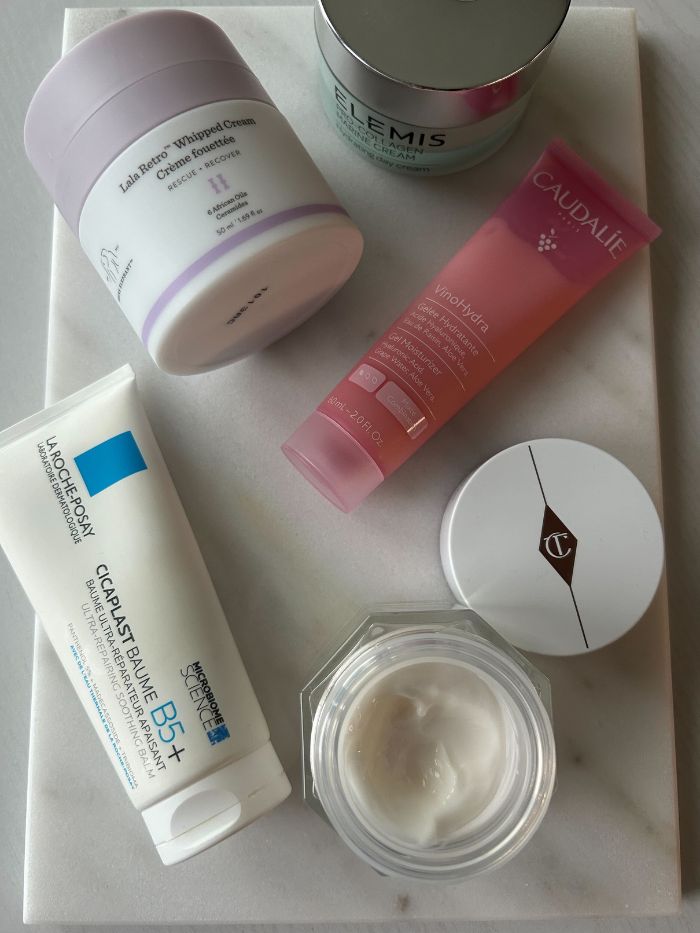
A selection of moisturisers that I have been testing.
15 Best Moisturisers 2025, Tried and Tested
- Best moisturiser all-round: Biossance Squalane + Omega Repair Cream
- Best moisturiser for oily skin: CeraVe Oil Control Moisturising Gel-Cream
- Best moisturiser for dry skin: Drunk Elephant Lala Retro Whipped Cream
- Best moisturiser for sensitive skin: Cetaphil Daily Hydrating Moisturiser
- Best moisturiser for dull skin: Tatcha The Dewy Skin Cream
1. Biossance Squalane + Omega Repair Cream
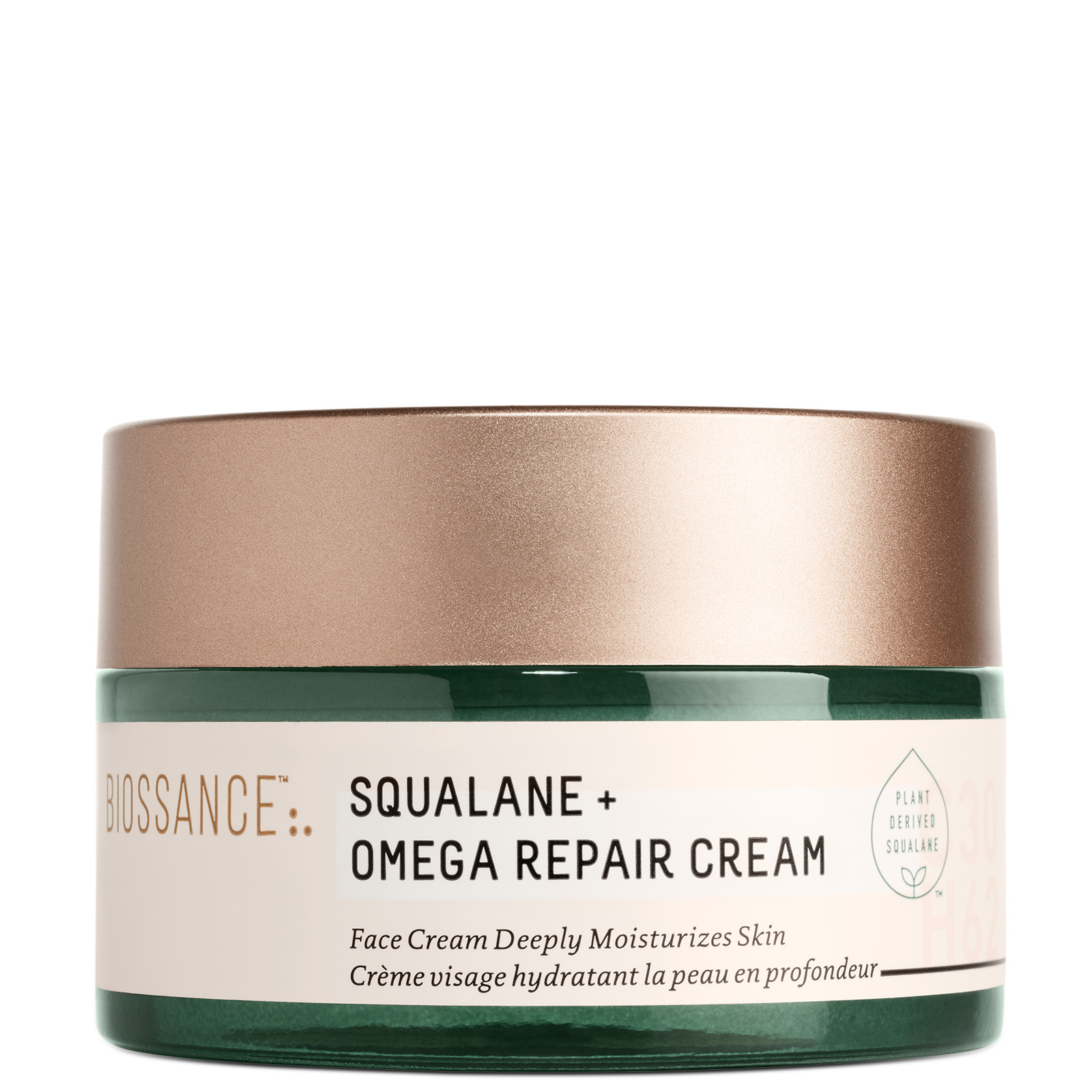
Best for: Anyone and everyone
Key ingredients: Ceramides, fatty acids, sugarcane-derived squalane, hyaluronic acid
This moisturiser is, hands down, one of the most underrated skincare products around—but those who know know. Packed with barrier-protecting and restoring ingredients such as ceramides and squalane, it is a no-fuss moisturiser that delivers the essential hydration that skin needs. Beauty director, Shannon Lawlor considers it one of her most cherished skincare products. "The texture of this cream is decadent without being too thick or rich—it glides over the skin and sinks in to leave a suitably plumped, happy, hydrated complexion," she says.
For
- Contains the most hydrating, skin-nourishing ingredients
- Plumps, hydrates and nourishes with no fuss
Against
- It's no-fuss and fragrance-free, so do keep that in mind
2. CeraVe Oil Control Moisturising Gel-Cream
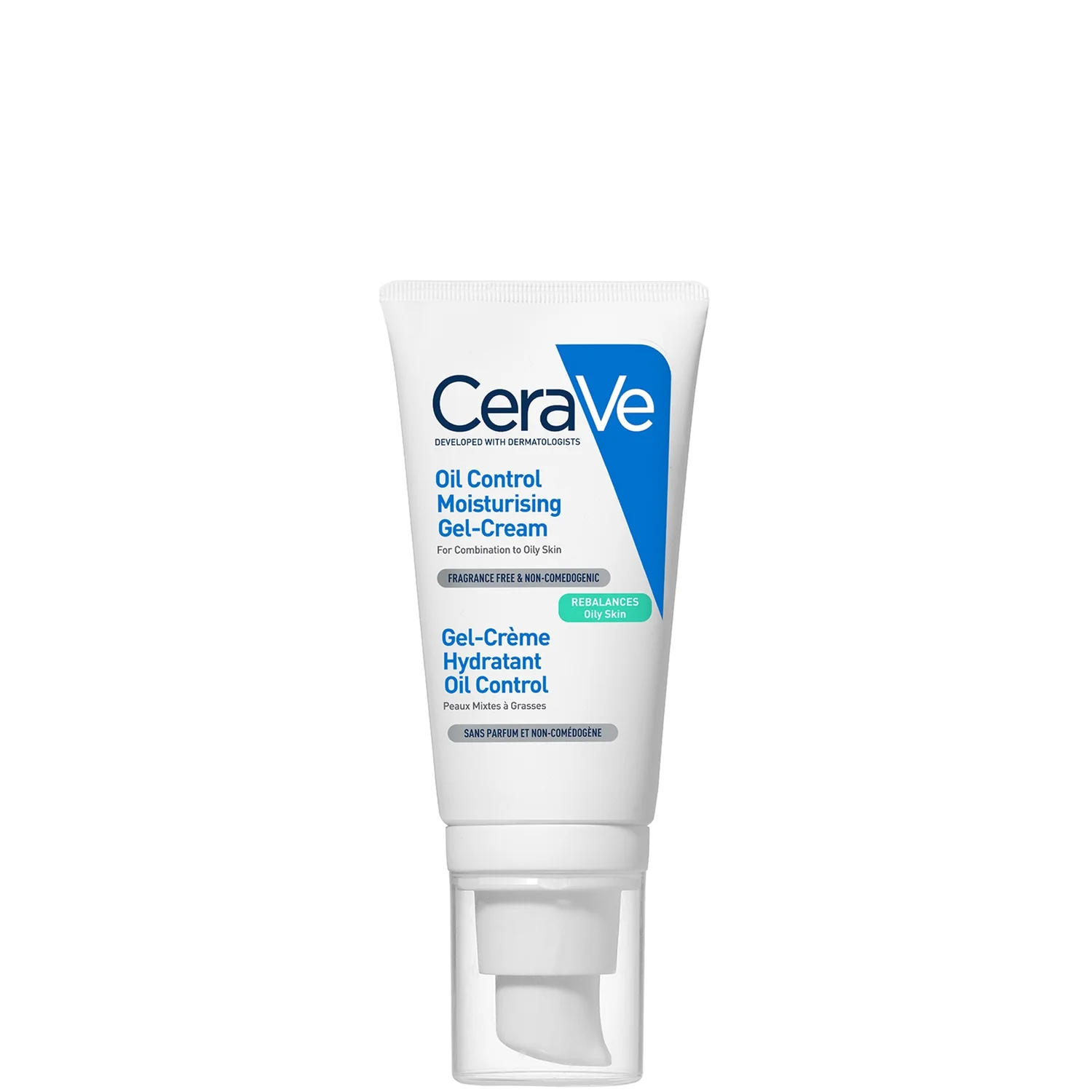
Best for: Oily skin
Key ingredients: Hyaluronic acid and ceramides
This is my go-to moisturiser in the summer months when my skin feels a little oilier. If you have an oily skin type all year round, you need this product on your radar. The lightweight texture is infused with hyaluronic acid and ceramides to nourish the skin, and the fragrance-free, non-comedogenic formula helps to minimise shine.
While I wouldn't use this in the evening (I prefer applying a richer cream before bed), I love using this in the morning before applying my makeup. It sinks into the skin in seconds and creates a smooth base for my foundation. For just £17 I couldn't recommend this enough.
For
- Lightweight formula
- Fragrance free
- Affordable
- Easy to apply
Against
- Might not be as hydrating for dry skin types
- Works better as a morning moisturiser
3. Tatcha The Dewy Skin Cream
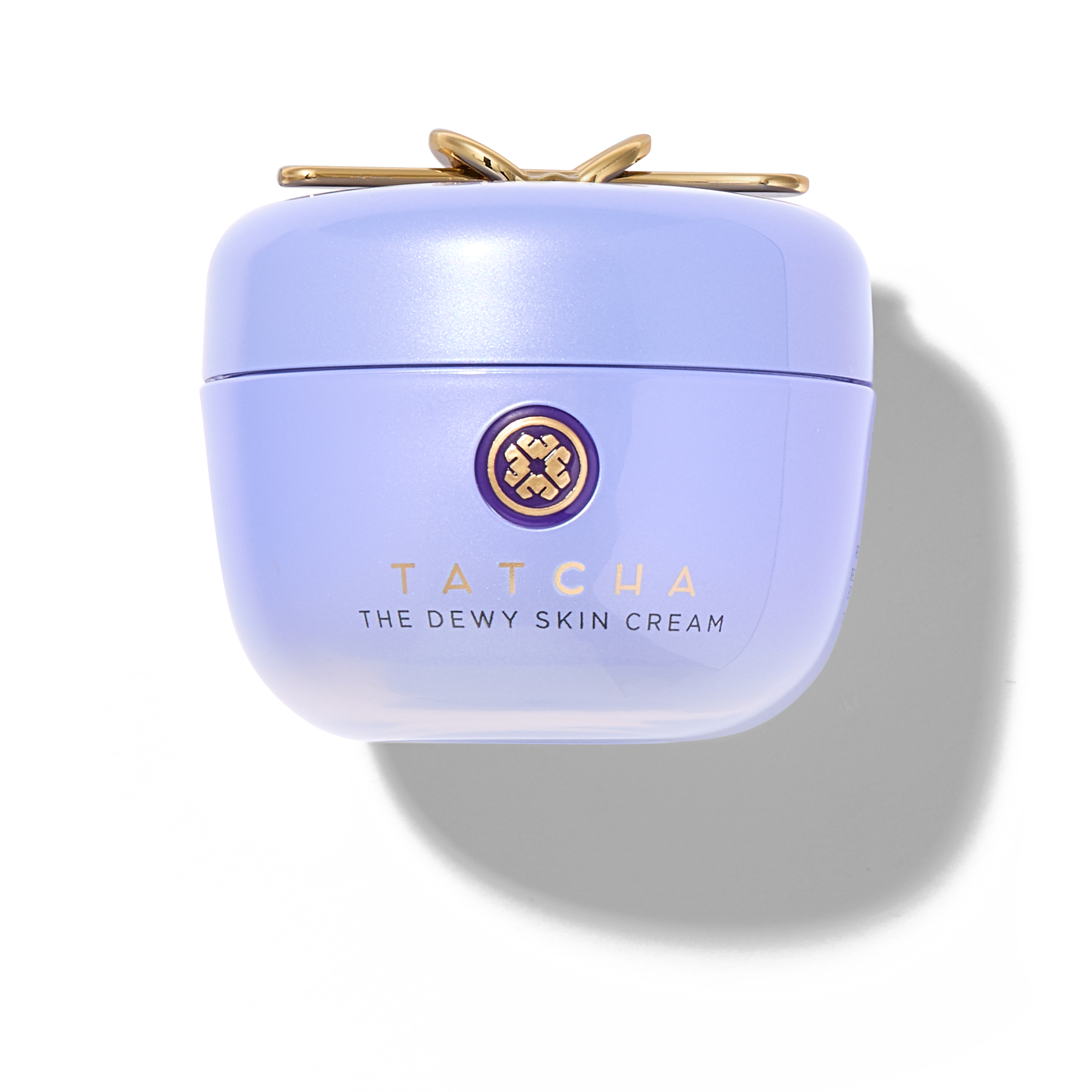
Best for: Dull skin
Key ingredients: Japanese botanicals and hyaluronic acid
When my skin is feeling a little dull and lacklustre, this is the moisturiser I rely on to give me that much-needed glow. I wouldn't recommend this for oily skin types, but those of you with drier and dull skin will love the dewy formula.
With hyaluronic acid, skin barrier-boosting Okinawa algae blend and antioxidant-packed Japanese purple rice, this moisturiser is infused with key ingredients to keep thirsty complexions suitably quenched. Although it does have a thicker texture compared to the moisturiser above, it still works really well under makeup as it adds a radiant finish to the skin. That being said, I also apply it at night to let it work its magic while I sleep.
For
- Adds a glowy finish to the skin
- Works well under makeup
- Super hydrating
Against
- Expensive
- Can be a little tricky to apply
4. Cetaphil Daily Hydrating Moisturiser
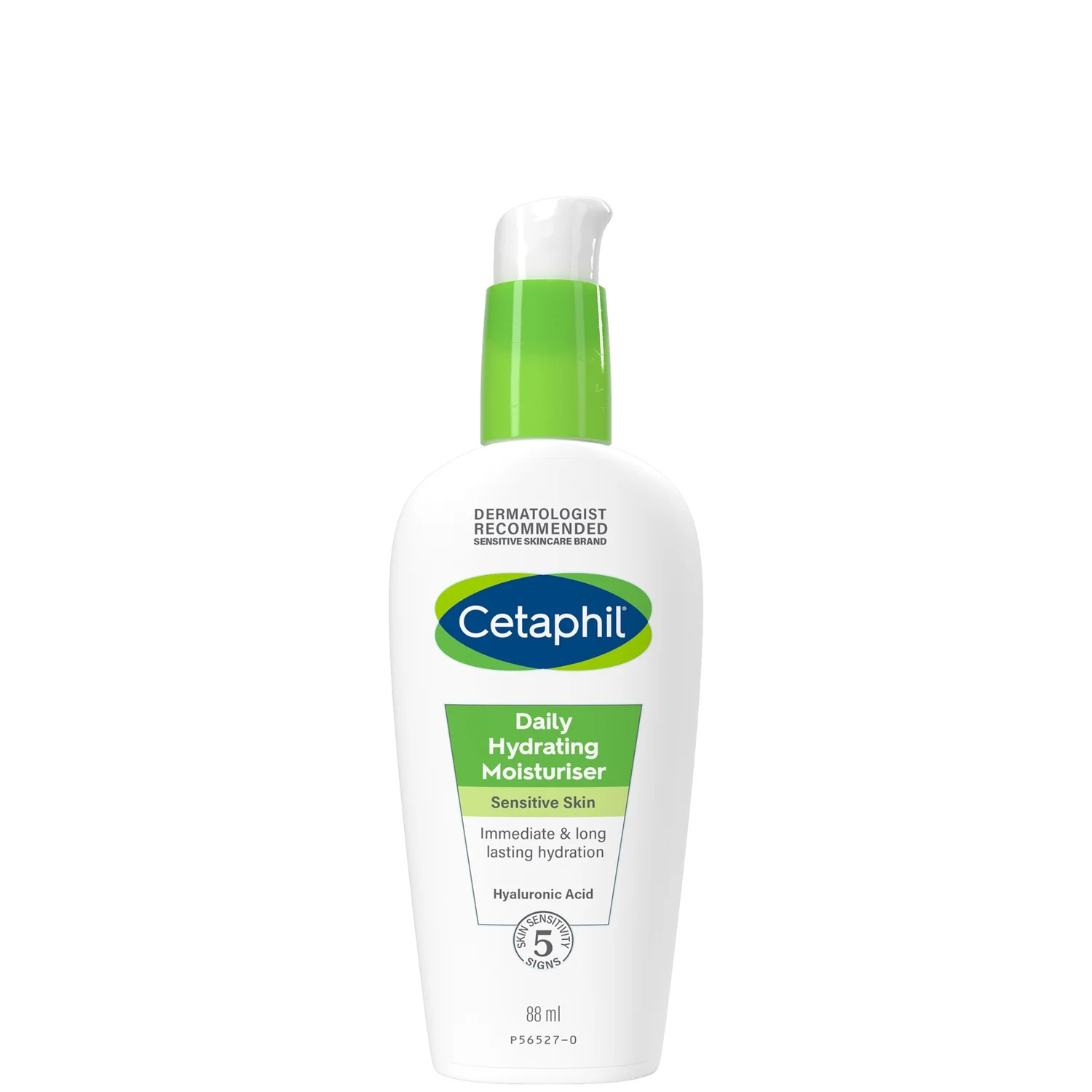
Best for: Sensitive skin
Key ingredients: Hyaluronic acid
Cetaphil is my go-to brand when my skin is feeling sensitive. The cleansers and moisturisers never irritate my complexion, and this daily hydrating option is a failsafe formula that my bathroom cabinet is never without.
Packed with hyaluronic acid, this moisturiser is fragrance-free and designed to not clog pores, so it's ideal for pretty much any skin type. That being said, if you have super dry skin then this lightweight formula might be better suited to your morning skincare routine, whereas in the evening you might want to use something a little richer. What I love about it is that it sinks into the skin in seconds and hydrates my complexion without that dreaded greasy feeling that some moisturisers can leave behind.
For
- More affordable
- Easy to apply
- Suitable for sensitive skin
Against
- Doesn't feel super luxurious
- Dry skin types might want something richer
5. Drunk Elephant Lala Retro Whipped Cream
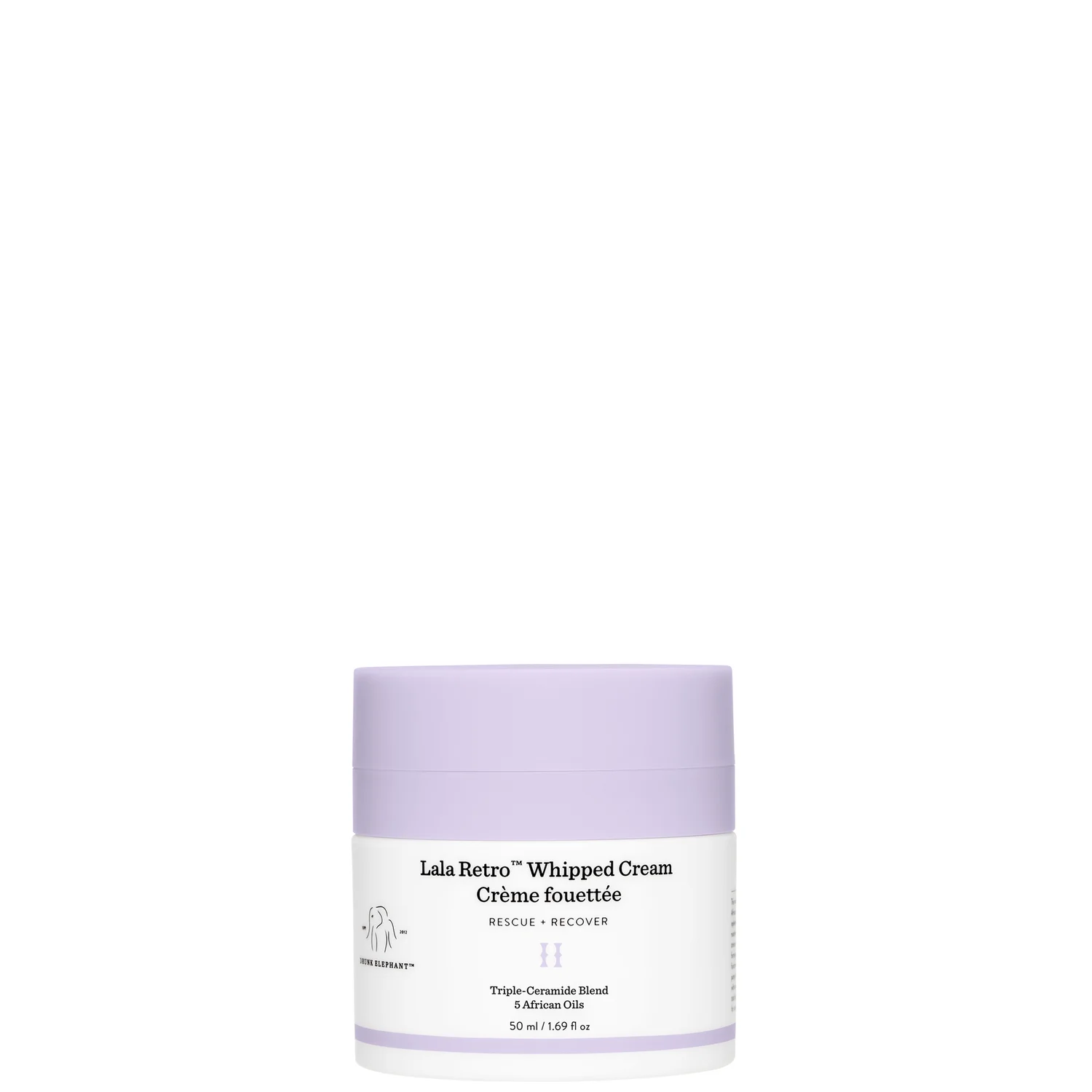
Best for: Dry skin
Key ingredients: African oils and plant ceramide complex
Speaking of rich moisturisers, let me introduce you to the Lala Retro Whipped Cream from Drunk Elephant. I've been using this for the last few months and have noticed such a difference in my dull, winter skin.
Now, this is a thicker consistency, so it might not be best for oily or blemish-prone skin types. But, if you have really dry skin, then this could be the formula for you. Not only does it hydrate the complexion thanks to six different African oils and a plant ceramide complex, but it also helps to nourish the skin barrier and protect the skin against environmental stressors. It comes in a fun pump format that dispenses the exact amount of product every single time, and a little really does go a long way.
For
- Easy pump dispenser
- Hydrating formula
- Thick consistency
Against
- Expensive
- Might be too thick for oily or blemish-prone skin
6. Caudalie VinoHydra Gel Moisturiser
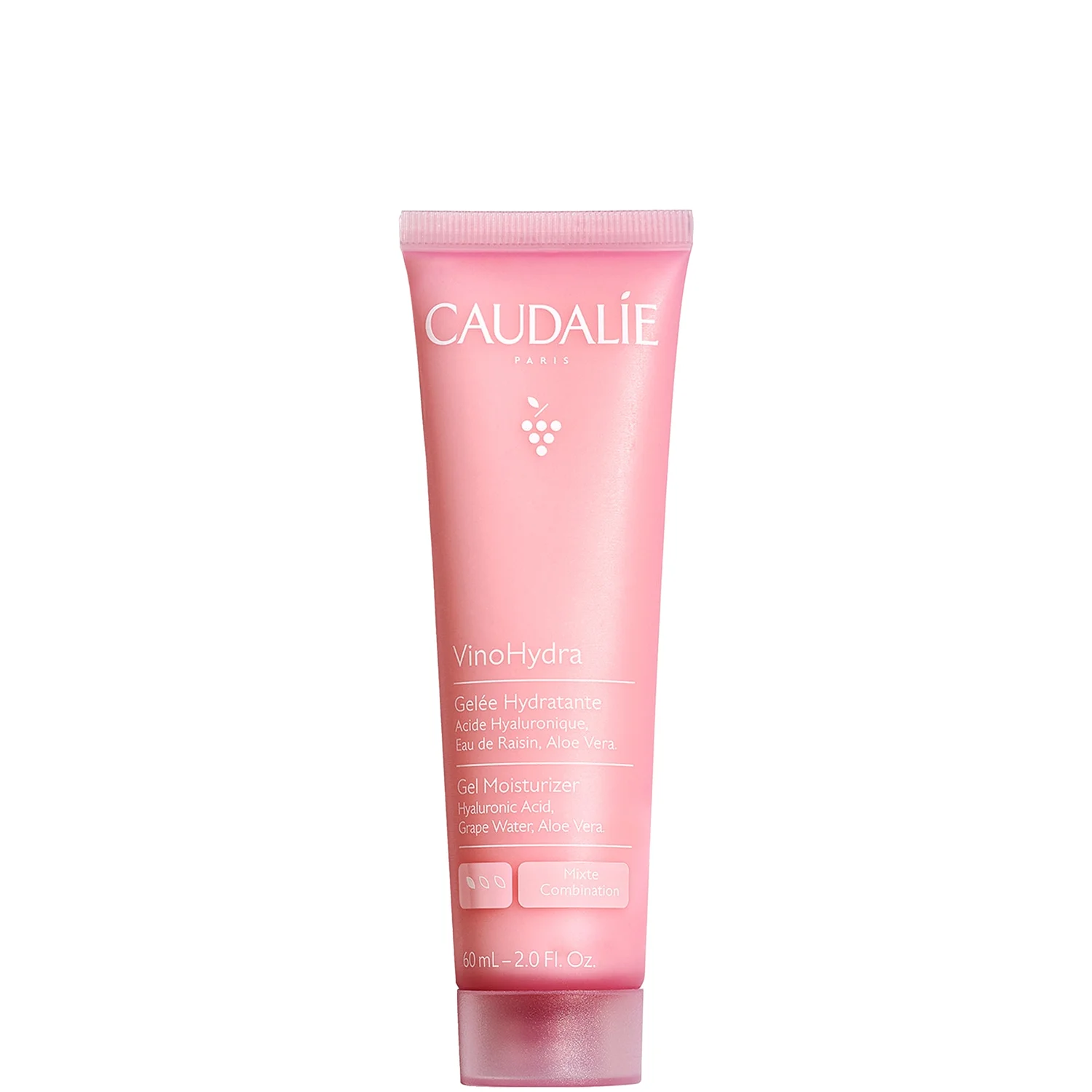
Best for: Combination skin
Key ingredients: Aloe vera, organic grape water and hyaluronic acid
Anyone with combination skin will know the struggle of finding a hydrating moisturiser that doesn't feel greasy or clog pores. Enter, Caudalie's Vinohydra Gel Moisturiser. This moisturiser landed on my desk a few months ago and I've been hooked ever since.
I've been using this as part of my morning skincare routine as it has a super refreshing, gel-like texture that really awakens my complexion after a long night's sleep. Plus, it sits beautifully under makeup. In true Caudalie style, it contains organic grape water and aloe vera to soothe the skin, alongside hyaluronic acid to hydrate. I wouldn't reach for this in the evenings as I prefer a rich cream at night, but this has become a morning staple for me.
For
- Super lightweight
- Refreshing to apply
- Works well under makeup
Against
- Might not be hydrating enough for really dry skin types
7. Charlotte Tilbury Magic Cream
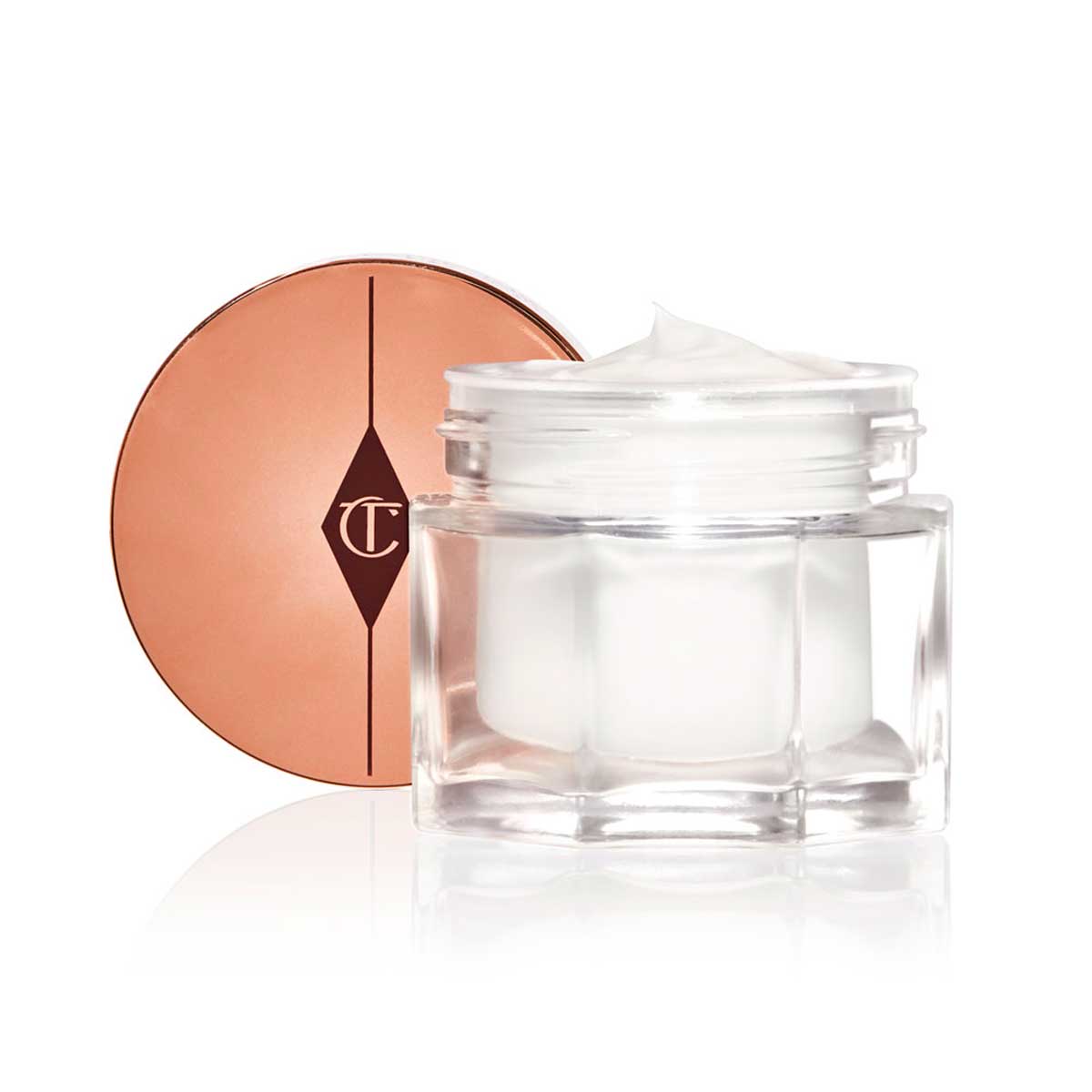
Best for: Pre-makeup skin prep
Key ingredients: Vitamin E, vitamin C, shea butter, aloe vera and hyaluronic acid
This moisturiser has somewhat of a cult following, and after trying it out myself, I can totally see why. Interestingly enough this product was actually born backstage and was designed to revive models' complexions and prep their skin for makeup.
The formula itself is incredibly hydrating and feels silky soft once applied to the skin. It creates a flawless base for makeup and also adds a beautiful glow. It really is like magic in a jar for dry skin types and I always make sure to have a tub in my skincare stash for the winter months.
For
- Really hydrating
- Works well under makeup
- Adds a beautiful glow to the skin
Against
- More expensive
- Bulky pot
8. Beauty Pie Super Healthy Skin Ultimate Anti-Aging Cream
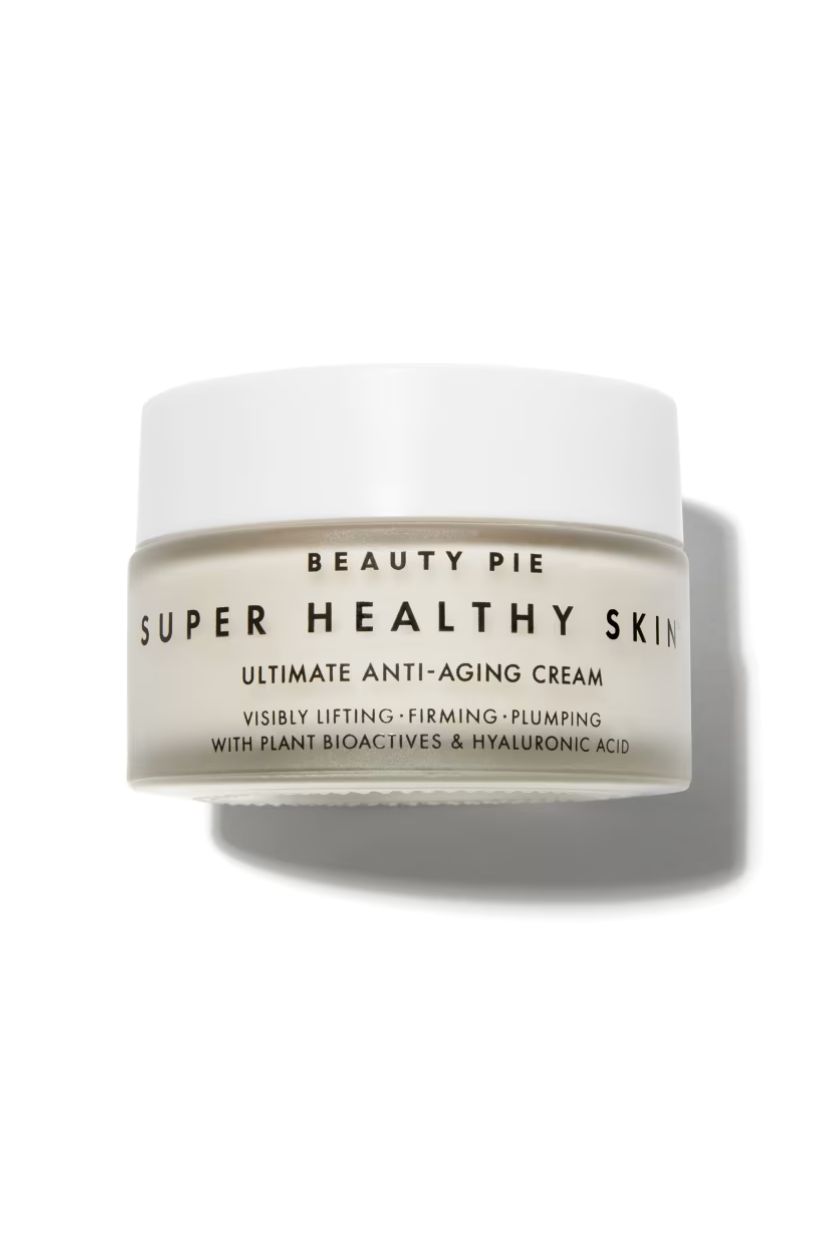
Price shown is members' price.
Best for: Mature skin
Key ingredients: Hyaluronic acid and antioxidants
You didn't think I'd do this roundup and not include this Beauty Pie moisturiser, did you? We've written a lot about this hydrating cream on Who What Wear UK, and for good reason. I like to thing of this as a great all-rounder, as it's an effective moisturiser for a range of skincare concerns from fine lines to dry skin and dullness. However, it is formulated for mature skin, so you better believe it's great for fine lines, too.
Packed with skin-loving ingredients from hyaluronic acid to antioxidants, I love the texture of this and use it as part of both my morning and evening skincare routine. Do I think a moisturiser can actually get rid of fine lines? No. Does this work to hydrate and plump the skin to make your complexion look fresher and fuller? Absolutely.
For
- Tackles lots of skincare concerns
- Hydrating formula
Against
- Bulky pot
- Have to have a Beauty Pie membership to get the discount
9. Byoma Moisturizing Gel Cream
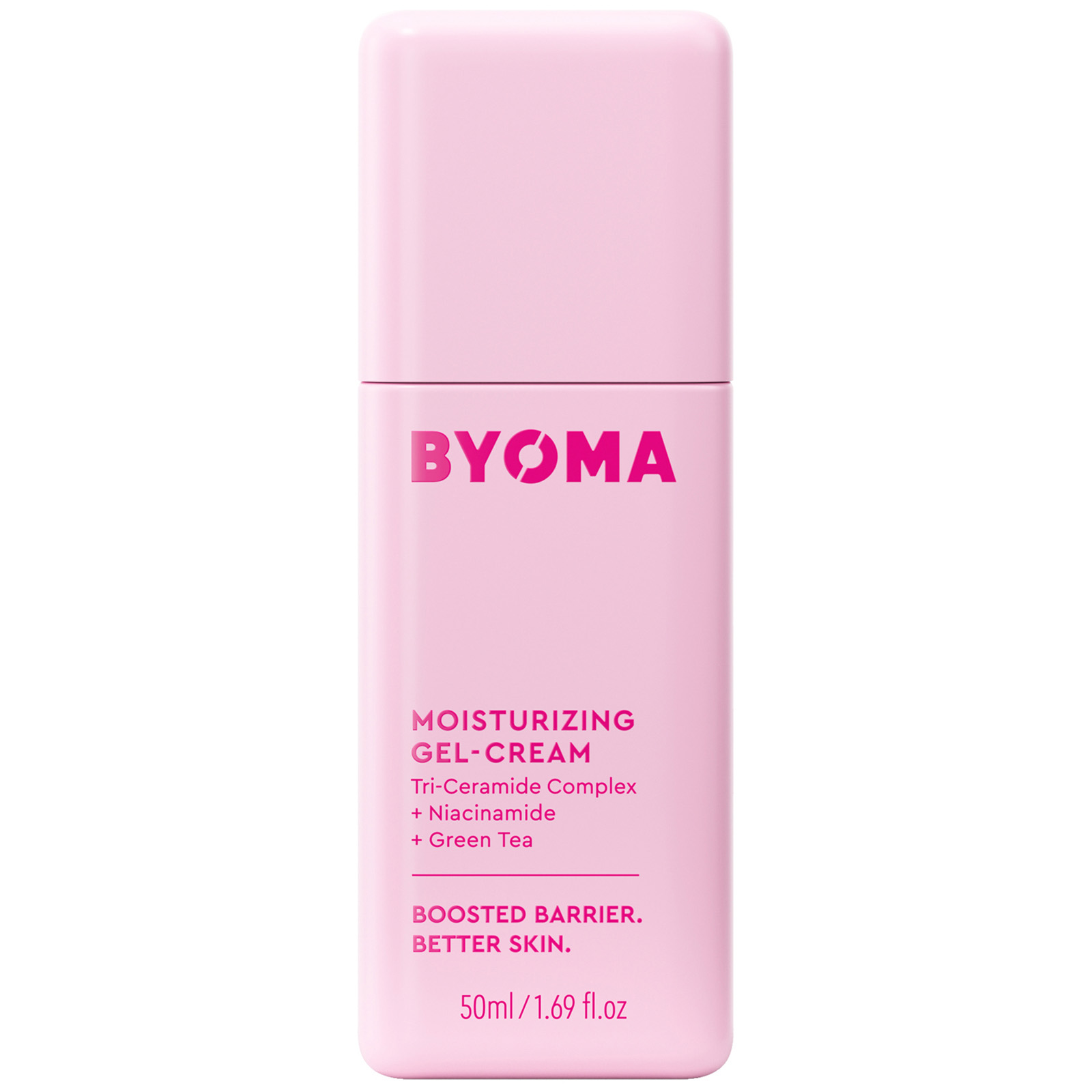
Best for: A lightweight texture
Key ingredients: Tri-ceramide complex and niacinamide
I recommend Byoma skincare to pretty much everyone I know. Not only is it affordable but the formulas have all been designed with the skin barrier in mind so they are perfect if your skin is feeling dry or irritated. That being said, the brand also have some great skincare products for oilier skin types. Case in point, the Moisturizing Gel Cream.
What I love about this formula is that it feels super creamy on the skin while still feeling lightweight. The gel texture is also really cooling so it's a great option for your morning skincare routine. All in all, it's an absolute dream to use and hydrates the skin without feeling greasy or clogging pores.
For
- Lightweight gel texture
- Easy to apply
- More affordable
Against
- Might not be rich enough for really dry skin
10. No7 Lift & Luminate Triple Action Day Cream
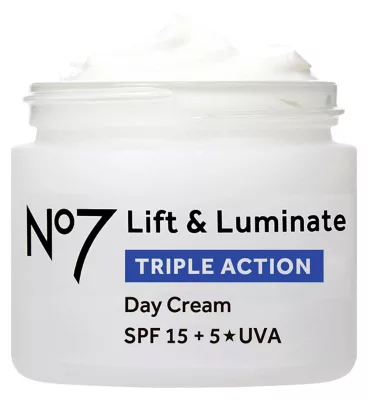
Best for: Natural radiance
Key ingredients: Peptides, hyaluronic acid, vitamin C and retinyl palmitate
Believe it or not, I've actually had strangers compliment my skin when wearing this moisturiser. Yes, it adds that much of a glow. Suitable for all skin types (even sensitive), the formula is packed with effective ingredients such as peptides, hyaluronic acid, vitamin C and retinyl palmitate, which is No7's pro-retinol ingredient that is gentle enough for sensitive skin while still supporting the skin's renewal process.
It's moisturising but not greasy, and adds a subtle glow that I think even oilier skin types would be a fan of. If you're looking for a new moisturiser to boost radiance under makeup, this is one of my top recommendations.
For
- Full of effective ingredients
- Adds a beautiful glow
Against
- Bulky pot is not great for traveling
11. La Roche-Posay Cicaplast Balm
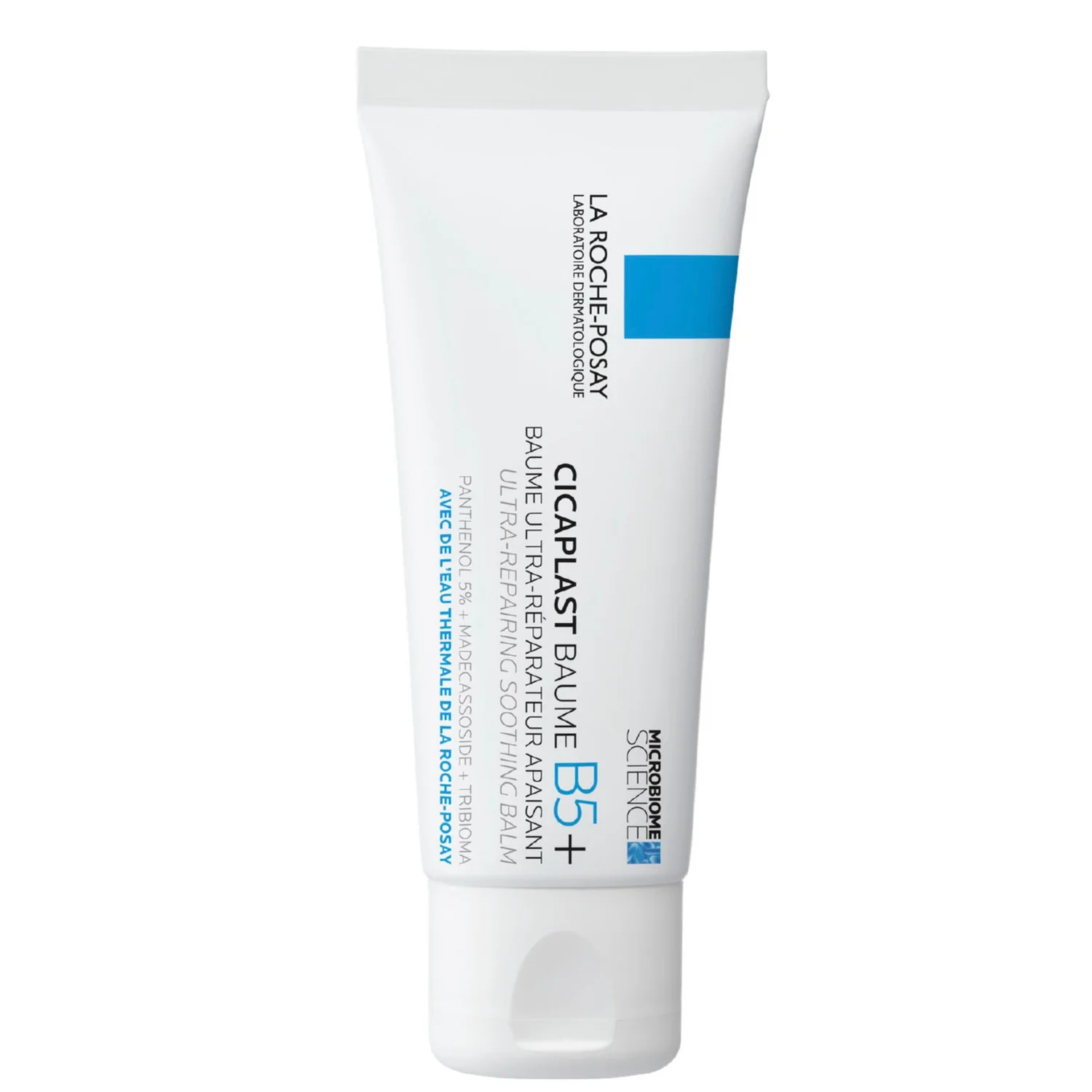
Best for: Very dry skin
Key ingredients: Thermal spring water and panthenol
I'm sure you've seen this product all over your TikTok feed, but is it worth the hype? In my opinion, it really is. I don't think it's technically advertised as a moisturiser, but I personally like to use it in place of my regular face cream when my skin is feeling particularly dry or dull. I plaster a thick layer on at night and wake up with a soft, glowing complexion.
Now, this cream is thick (it's more of a balm texture), but it is suitable for even the most sensitive of skin. That being said, I probably wouldn't wear it in the daytime and wouldn't recommend it for oilier skin types. But, if you're looking for a hydrating night cream, add this to your basket ASAP.
For
- Really hydrating
- Can be used as an overnight mask for dull, dry skin
Against
- Very thick texture
12. Elemis Pro-Collagen Marine Cream
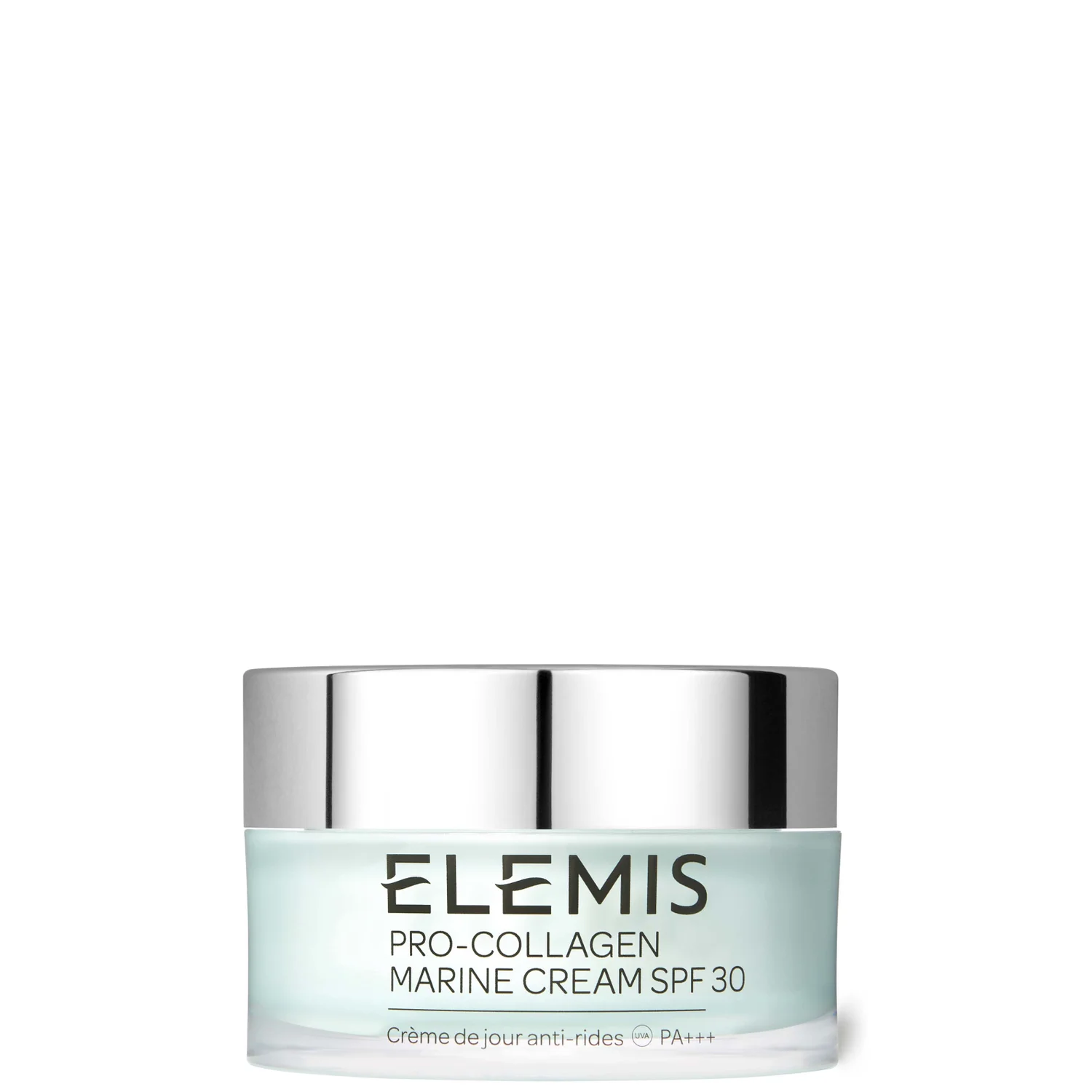
Best for: A spa-like treat
Key ingredients: Marine and plant actives
I've had this Elemis cream in my skincare stash for years, and I know I can rely on it for those days where my skin texture feels a little off. It's a super hydrating, smoothing formula and although it feels rich and luxurious, the gel-cream texture is lightweight enough to create a silky soft base for makeup. Plus, it comes with SPF 30 for added protection.
I would say that this is best for dry to combination skin, but really oily skin types might want to opt for something even lighter.
For
- Really hydrating
- Lightweight formula
- Contains SPF 30
Against
- Expensive
- Bulky pot is not great for travelling
13. Vichy Minéral 89 72Hr Hyaluronic Acid and Squalane Moisture Boosting Cream
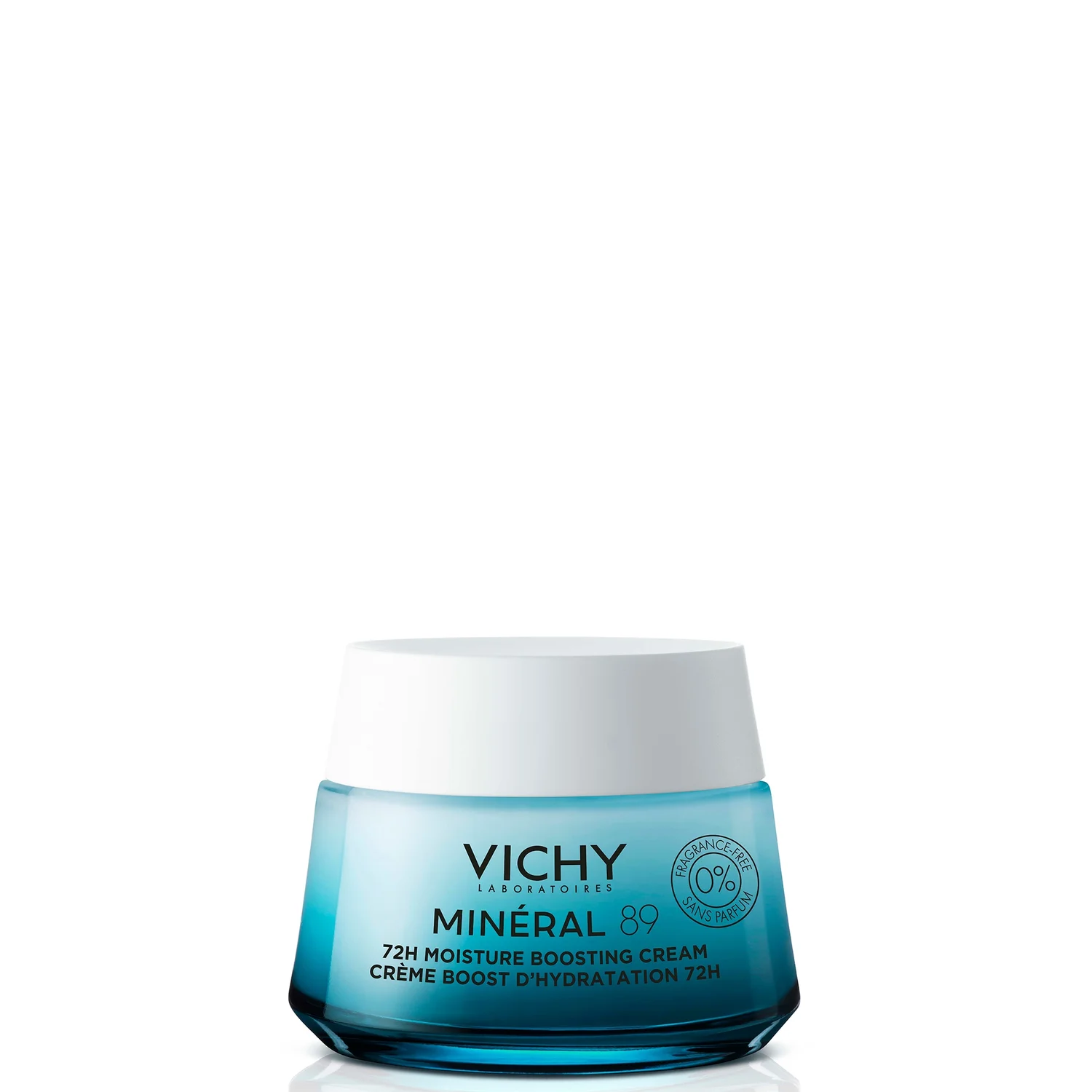
Best for: Plumping hydration
Key ingredients: Hyaluronic acid and squalane
People rave about Vichy's Minéral 89 Serum, so I was really excited to get my hands on the cream version. A dermatologist actually recommended this moisturiser to me to help hydrate my skin, and the great thing is that it's suitable for all skin types.
Although it's packed with hyaluronic acid and squalane, the texture itself is incredibly lightweight and sinks into the skin in seconds. I always think my complexion looks plump and dewy after using this, and I reach for it both day and night thanks to the well-balanced formula.
For
- Hydrating without being too thick
- Works well under makeup but also a good evening option
Against
- Bulky packaging
14. Kate Somerville Goat Milk Moisturizing Cream
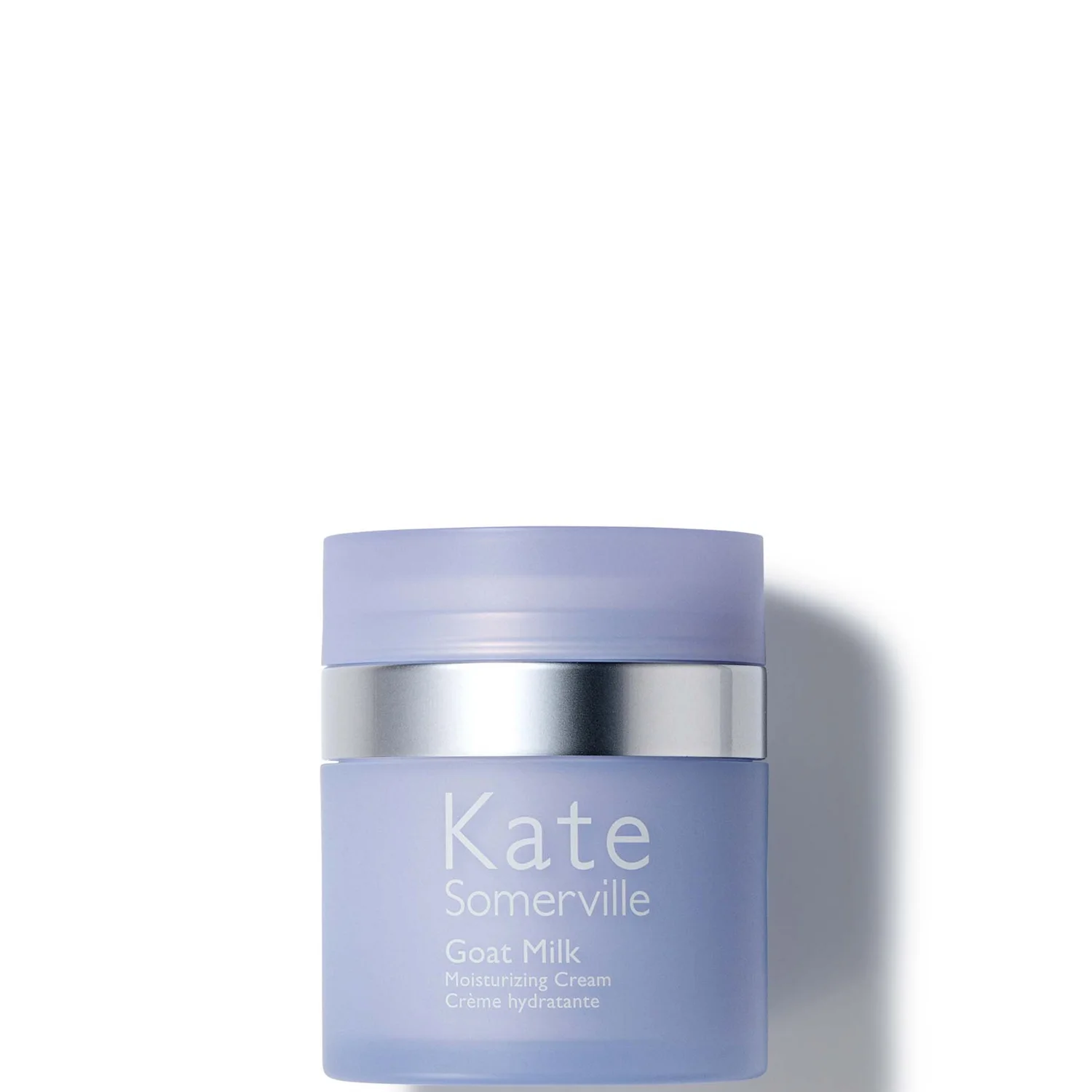
Best for: Reactive skin
Key ingredients: Aloe, goat milk, avocado and jojoba
I went through a period a few years ago where my skin was really red and irritated. My friend recommended the Kate Somerville Goat Milk Moisturising Cleanser and it completely calmed my complexion down. I decided to then invest in the moisturiser and I'm so glad that I did—and Shannon agrees. "I will never be without a pot of this stuff on my shelf. It has a lighterweight lotion consistency that packs a real soothing punch. Plus, it doesn't exacerbate my breakouts or congestion either," she says.
Similar to the cleanser, this cream has a calming effect and soothes irritated skin like never before. It's incredibly moisturising and really works to boost glow, too. Trust me, your skin will thank you for adding this to your skincare routine.
For
- Soothing formula
- Hydrating cream
Against
- Expensive
- Bulky packaging
15. La Mer The Moisturizing Cream
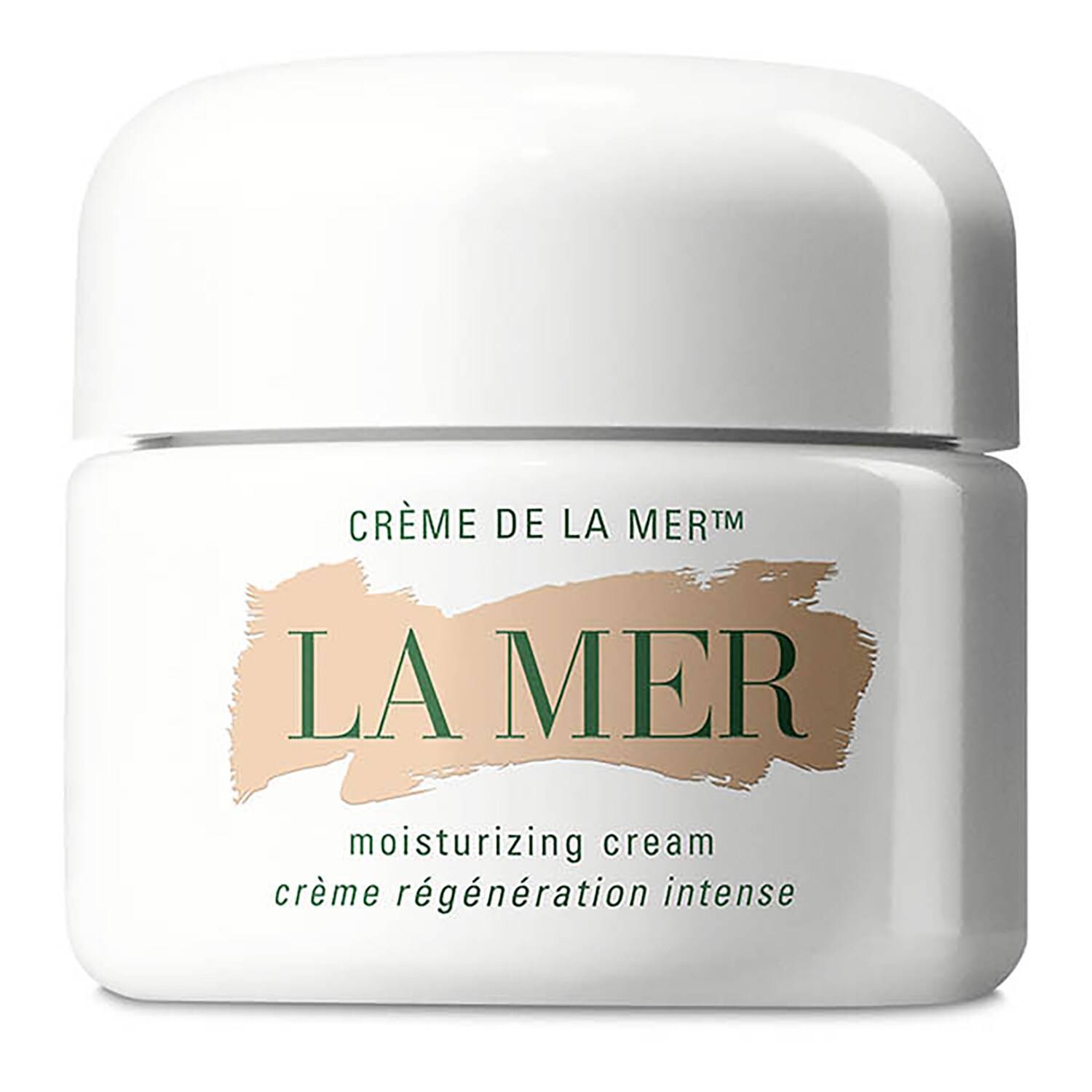
Best for: Mega luxury
Key ingredients: La Mer's Miracle Broth™
This luxury moisturiser is loved by beauty editors. Yes, it's incredibly expensive and I would never recommend spending this much on a moisturiser, but if you do happen to love luxury skincare and are in the market for a rich, moisturising cream, then it really is quite good for dry skin types.
The formula contains the brand's Miracle Broth™, which is essentially a cocktail of effective ingredients that work to support your skin's natural renewal process. The texture itself is incredibly thick so it's amazing for really dry skin, and will leave your complexion looking visibly softer and hydrated. I don't use it much, but when I do I always remember why I love it so much.
For
- A great option for really dry skin
Against
- Really expensive
- Very rich
16. Aveeno Face Calm and Restore Oat Gel Moisturiser
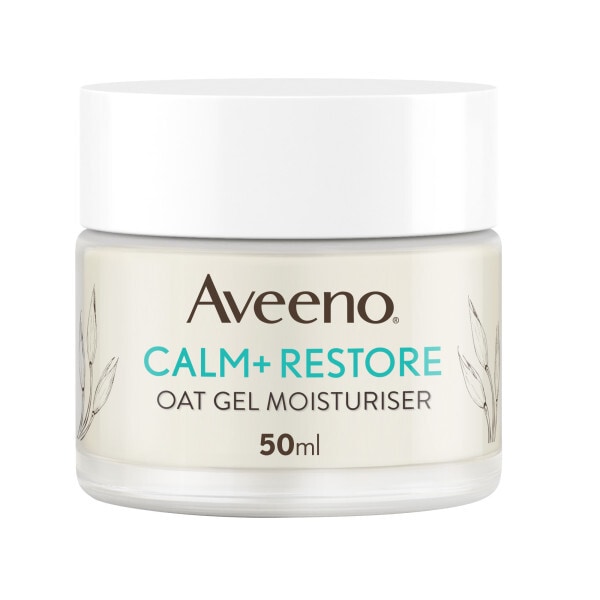
Best for: Affordable soothing
Key ingredients: Prebiotic oat
In contrast to the above, this Aveeno moisturiser is one of my favourite affordable skincare products. The gel-cream hybrid is super refreshing and great for oily skin types or for applying before makeup in the morning.
It contains prebiotic oat so is incredibly soothing and calming, and I like to reach for this when my skin is playing up a little bit and I want to keep things as simple as possible.
For
- More affordable
- Refreshing gel-cream formula
- Soothing on the skin
Against
- Might not be best for really dry skin types
17. Sunday Riley C.E.O. Afterglow
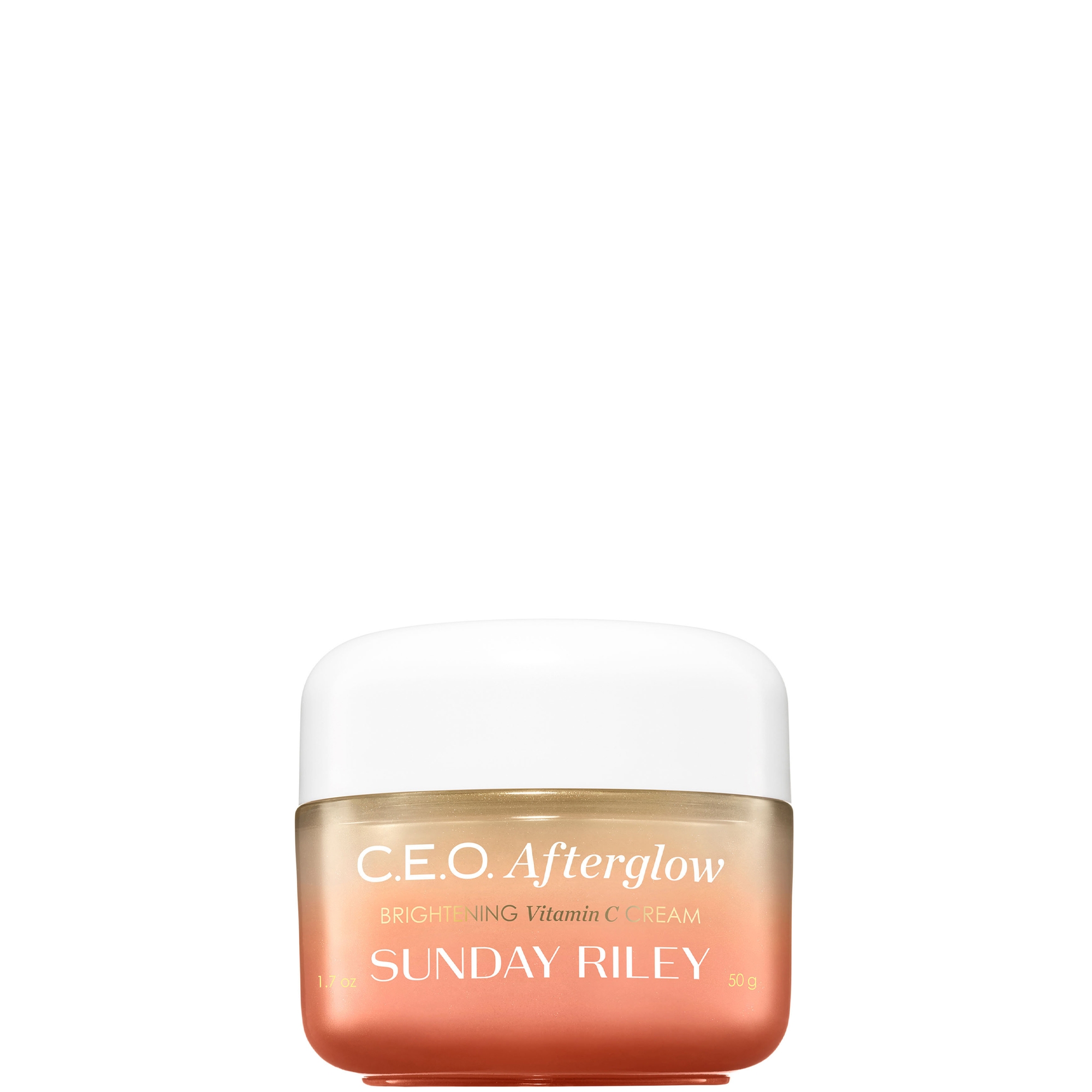
Best for: Instant glow
Key ingredients: Vitamin C, hyaluronic acid, amino acids
Sunday Riley's C.E.O. vitamin C range is considered one of the most radiance-boosting around, and this moisturiser is the real MVP. "Yes, this stuff is packed with vitamin C, so you're already going to benefit from the brightening, antioxidant benefits of the powerhouse ingredient. Beyond that, however, the cream also has a subtle sheen that boosts glow like you wouldn't believe. My skin laps it up and looks so good after application that I never feel the need to apply makeup over the top," says Shannon.
For
- Instant glow
- Beautifully hydrating
- Feels super luxurious
- Contains antioxidant vitamin C
Against
- It's a more expensive option
- If you don't like visible glow or sheen, it won't be for you

Grace Lindsay is the junior beauty editor at Who What Wear UK. At the age of 18 she decided to train as a makeup artist before going on to study english and media at Goldsmiths University. It was during that time that she explored her love for journalism by interning at a small beauty start-up based in Shoreditch. Since then, she has worked at a number of publications including Marie Claire and Hello!, where her love for all things beauty continued to grow.
As Who What Wear UK's junior beauty editor, she covers everything from the latest hair trends to the stand-out makeup products of the season.
-
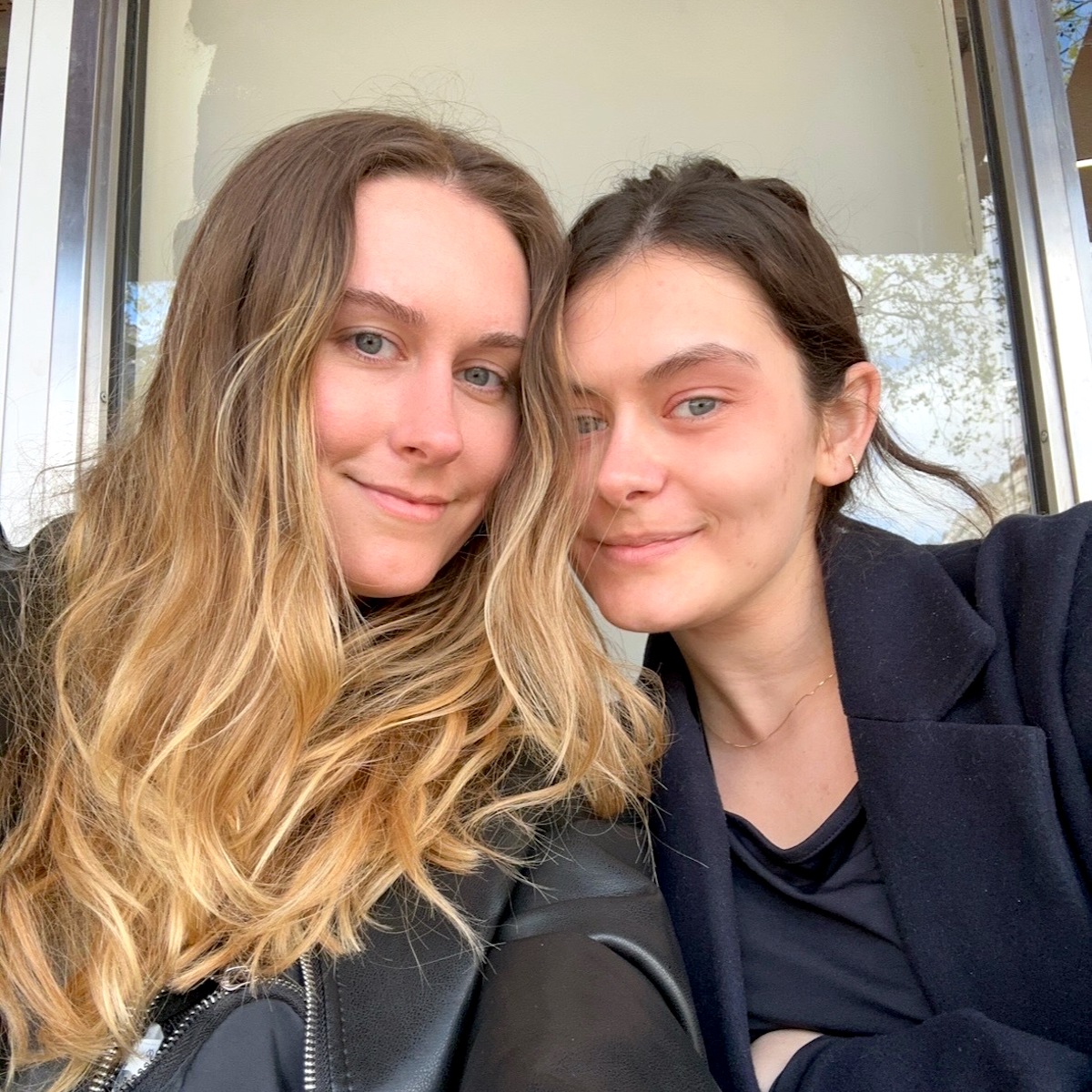 My Sister and I Have Opposite Skin Types, But These Products *Magically* Work for Both of Us
My Sister and I Have Opposite Skin Types, But These Products *Magically* Work for Both of UsThese are our "unicorn" products.
By Kaitlyn McLintock
-
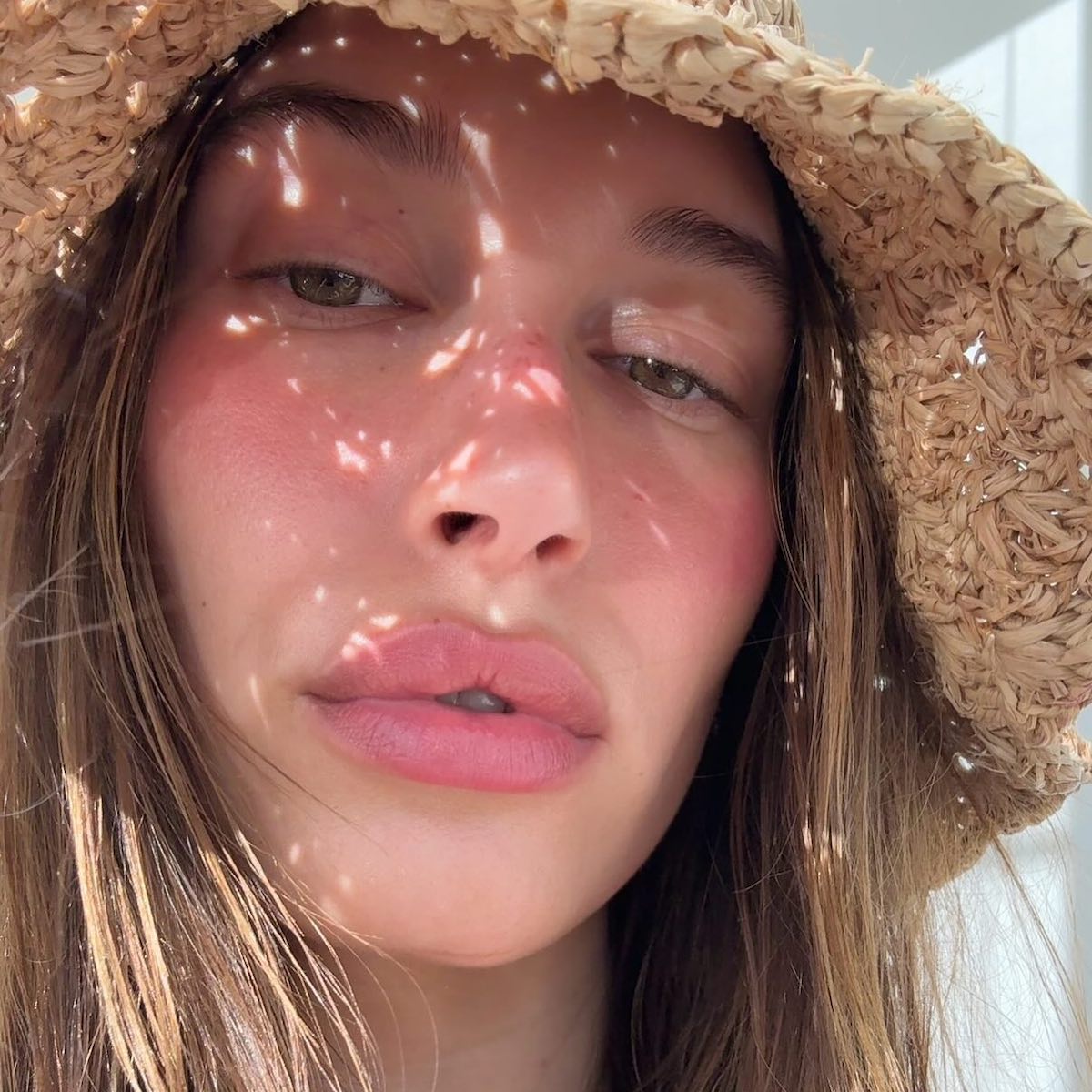 Hailey Bieber Says She "Couldn't Live Without" This $12 French Pharmacy Cream
Hailey Bieber Says She "Couldn't Live Without" This $12 French Pharmacy CreamThat's it—I'm buying three.
By Kaitlyn McLintock
-
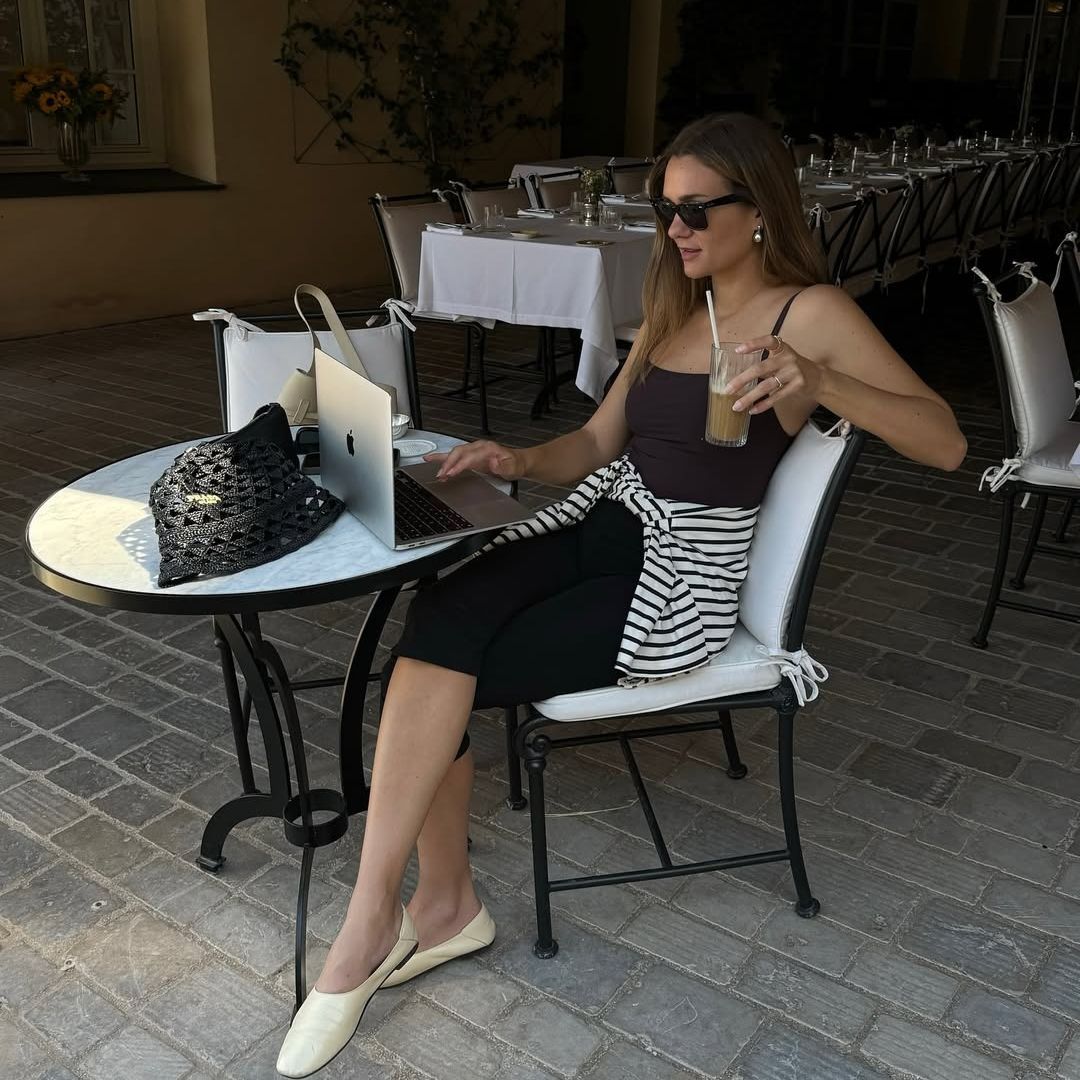 I Polled Our Editor Slack Channel—10 French Beauty Products We’d Buy From Ulta’s Spring Sale
I Polled Our Editor Slack Channel—10 French Beauty Products We’d Buy From Ulta’s Spring SaleBy Alyssa Brascia
-
 5 Underrated Pillars of Youthful and Glowing Skin, According to Zendaya's Facialist
5 Underrated Pillars of Youthful and Glowing Skin, According to Zendaya's FacialistI'm taking so many notes.
By Shawna Hudson
-
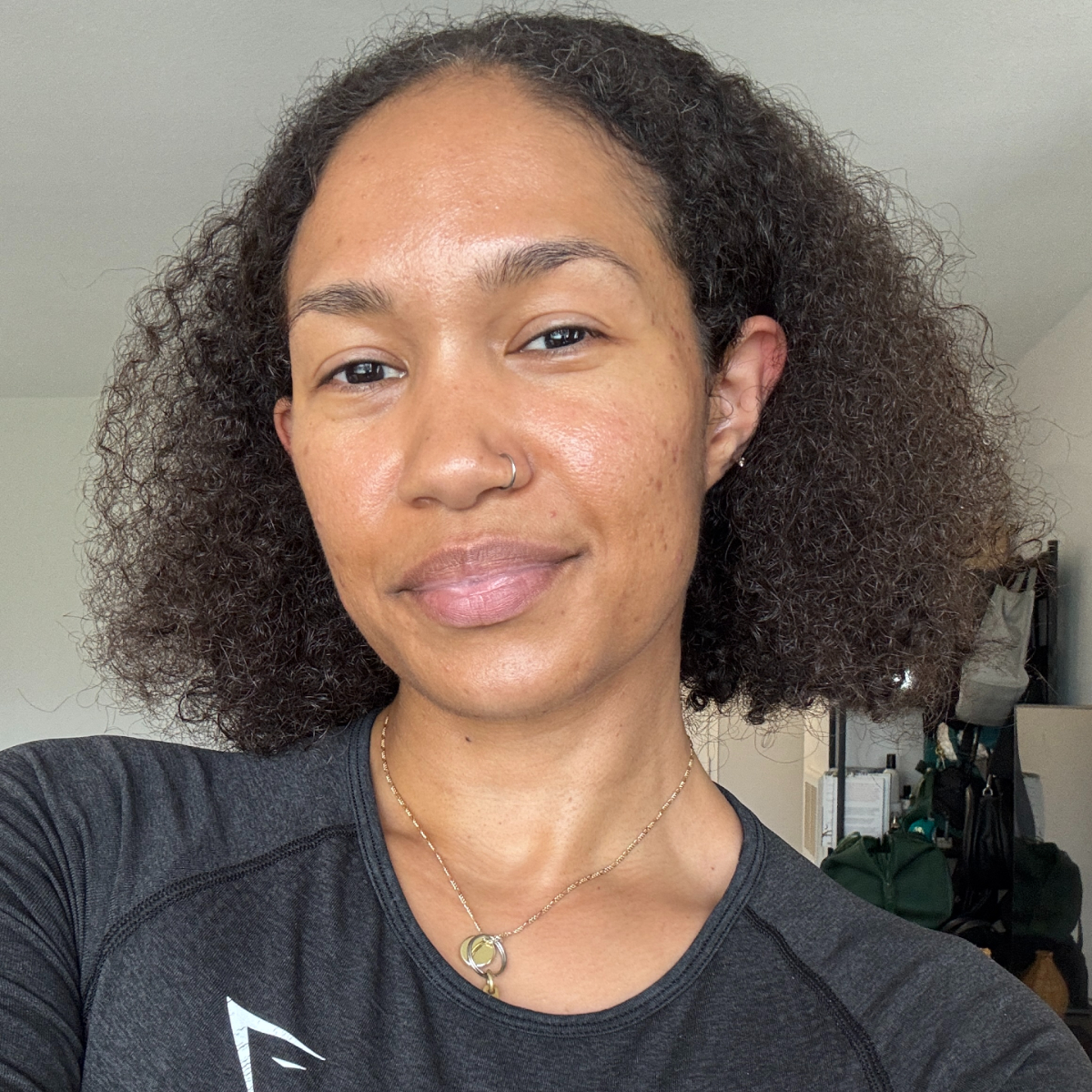 Aestheticians on Instagram Can't Stop Raving About This Acne-Clearing Serum, so I Tried It
Aestheticians on Instagram Can't Stop Raving About This Acne-Clearing Serum, so I Tried ItIt's perfect for sensitive skin.
By Shawna Hudson
-
 I Just Visited the Rainforest—These Were the Beauty Products That Proved Essential
I Just Visited the Rainforest—These Were the Beauty Products That Proved EssentialTravel dryness? I don't know her.
By Shawna Hudson
-
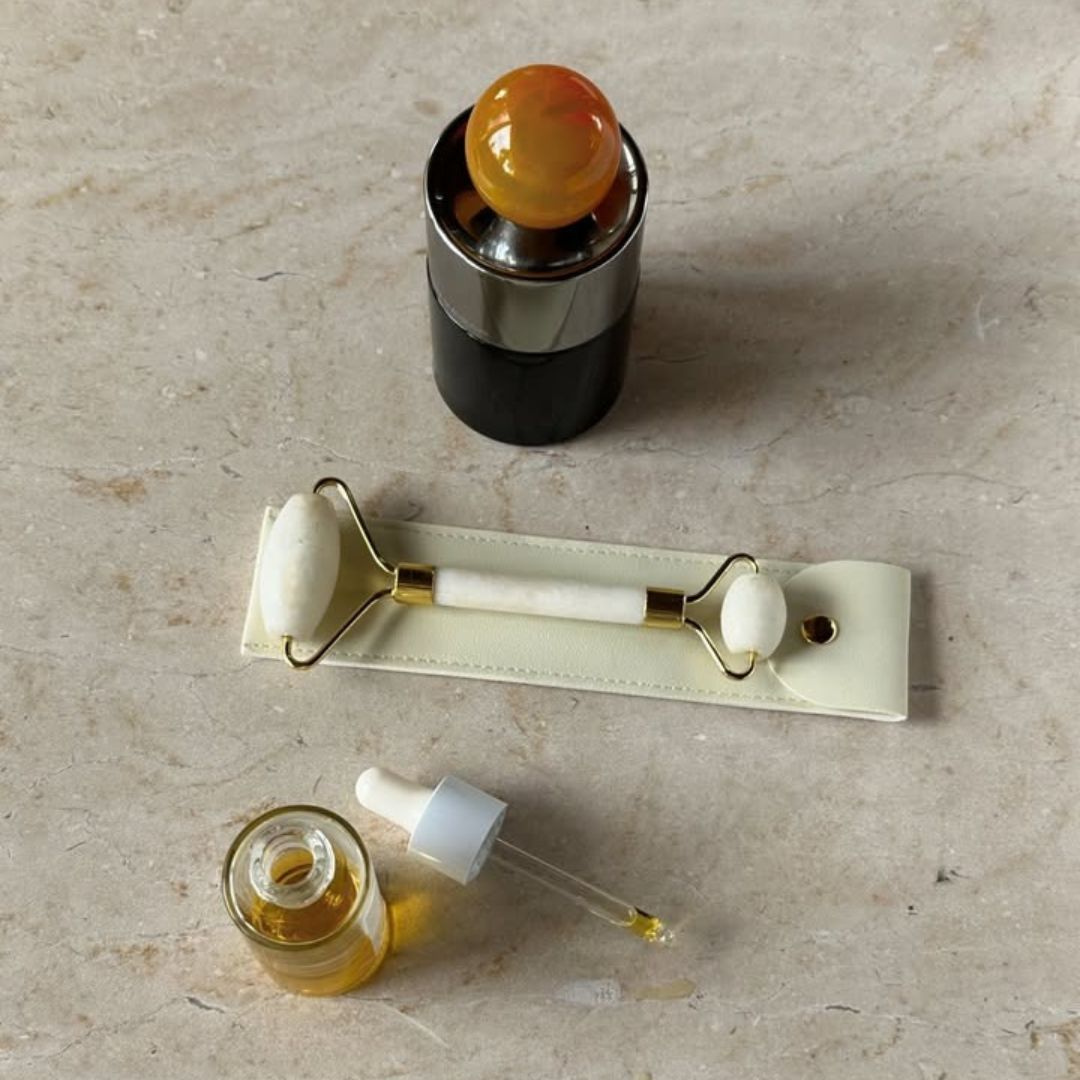 The Numbers Don't Lie—WWW Readers Shop These 11 Products the Most, and They're on Sale RN
The Numbers Don't Lie—WWW Readers Shop These 11 Products the Most, and They're on Sale RNSaving on your faves is basically a profit… It's girl math.
By Alyssa Brascia
-
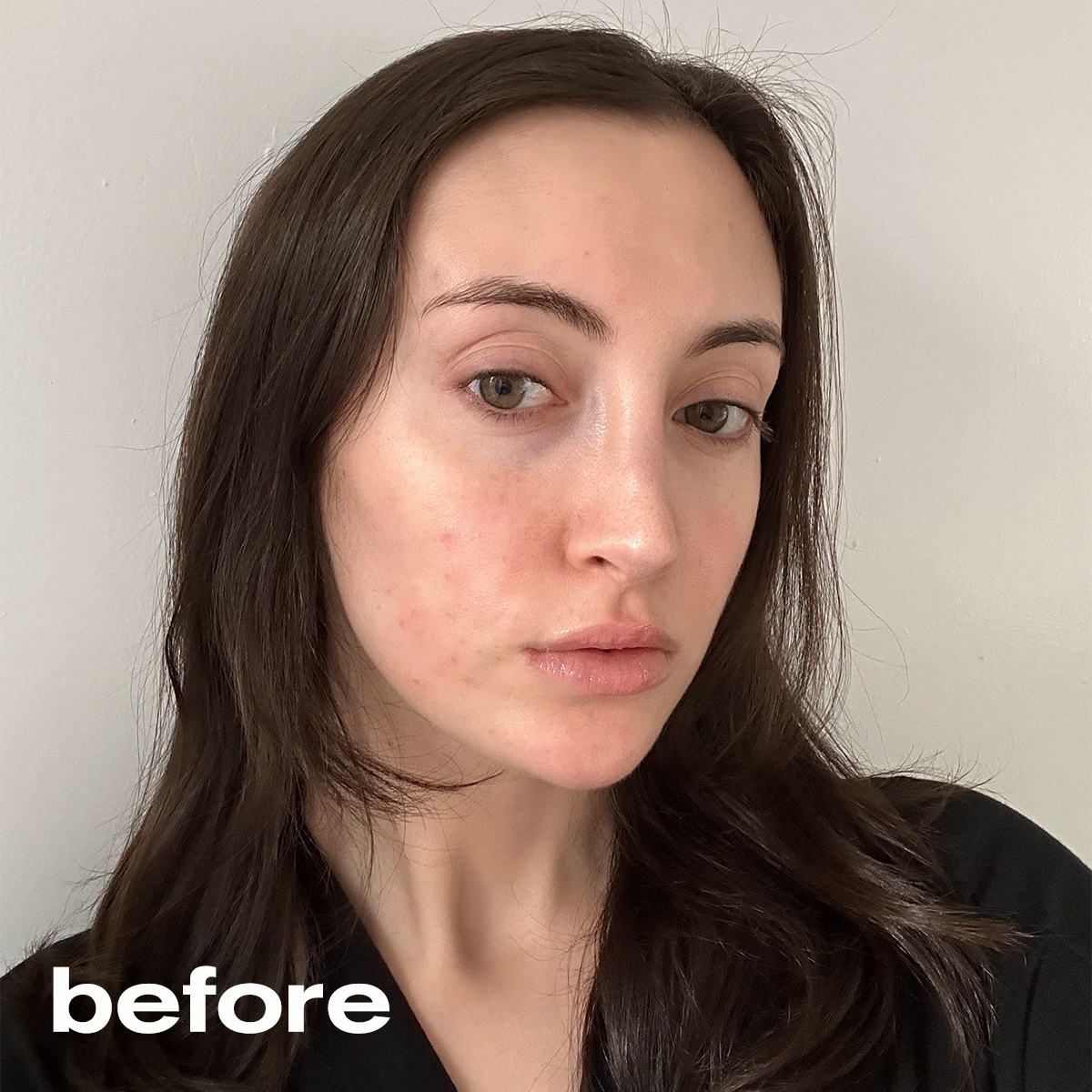 Chic Londoners Love This Ultra-Light Moisturizer, and No Lie, It Saved My Angry Winter Skin
Chic Londoners Love This Ultra-Light Moisturizer, and No Lie, It Saved My Angry Winter SkinIts key ingredient changed everything.
By Alyssa Brascia
